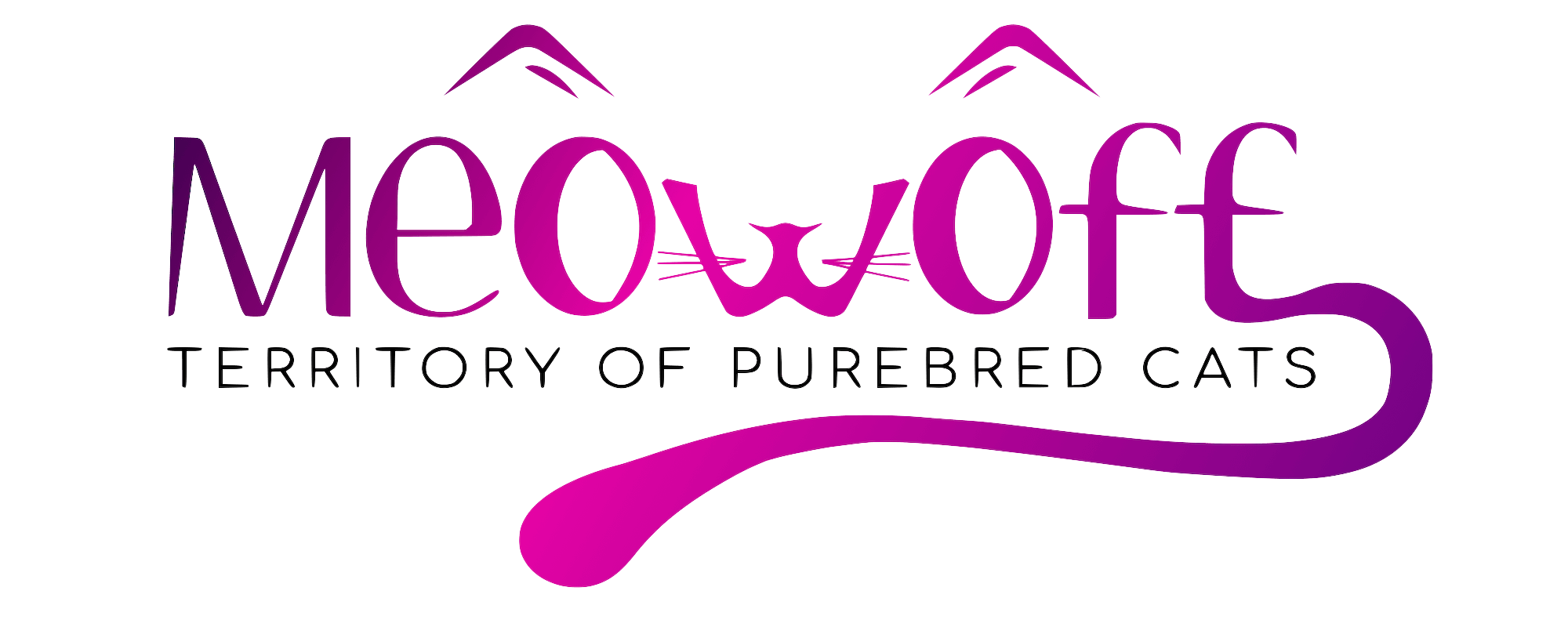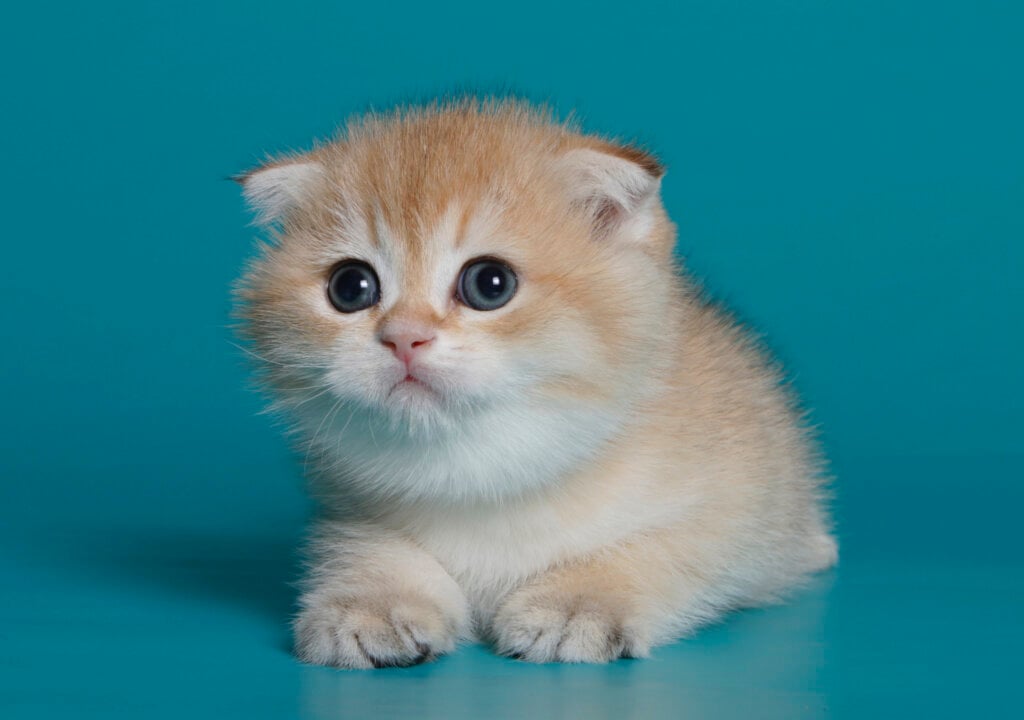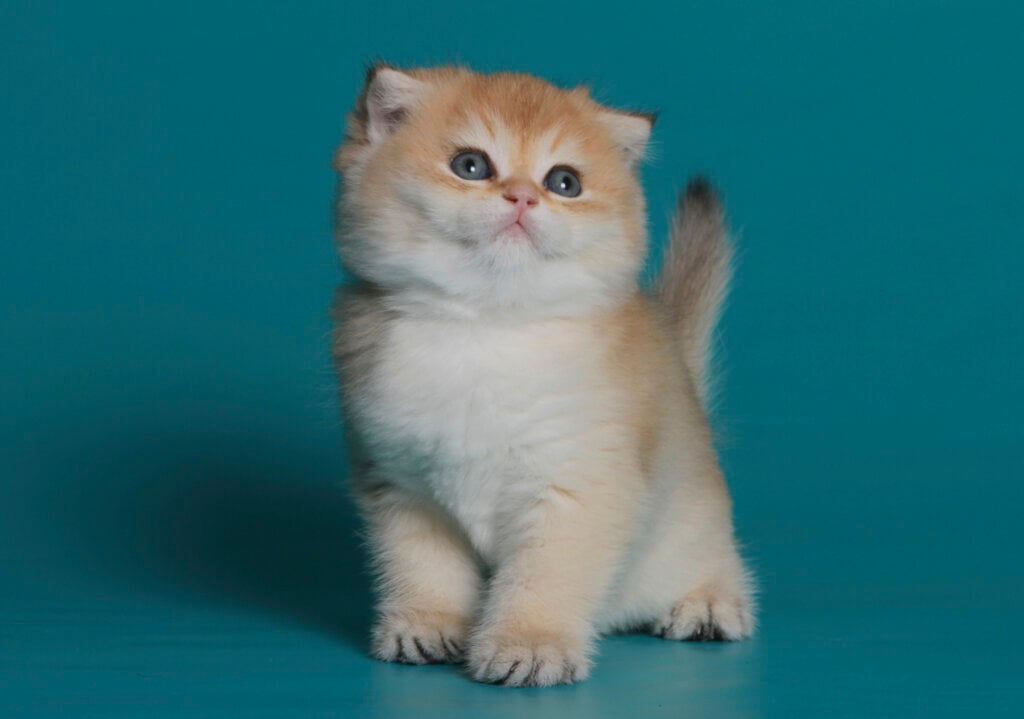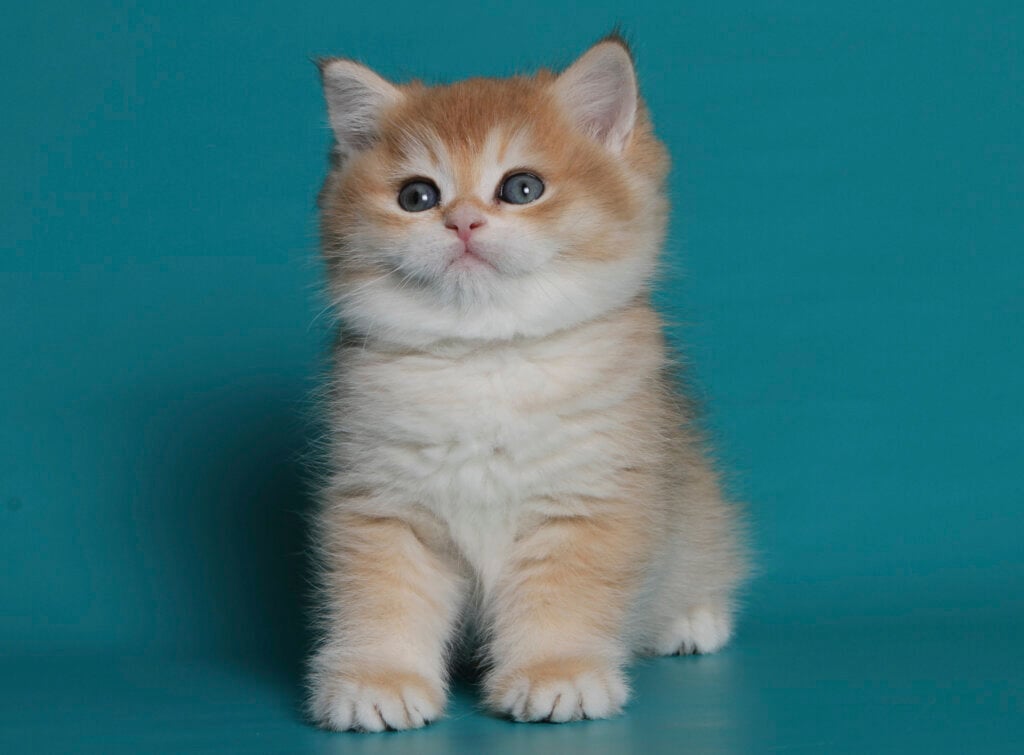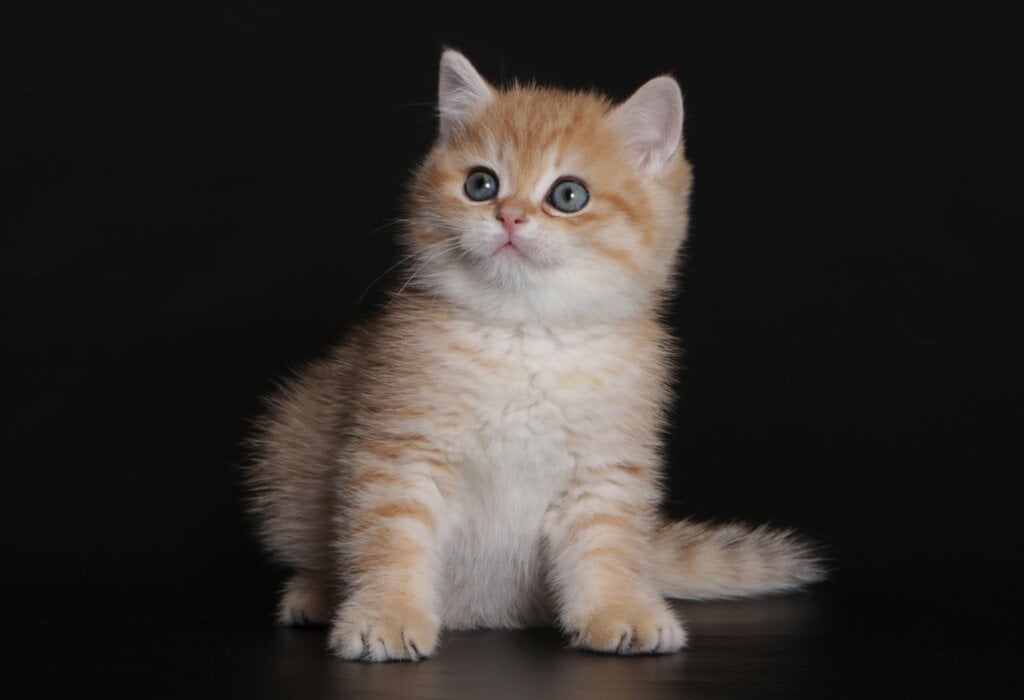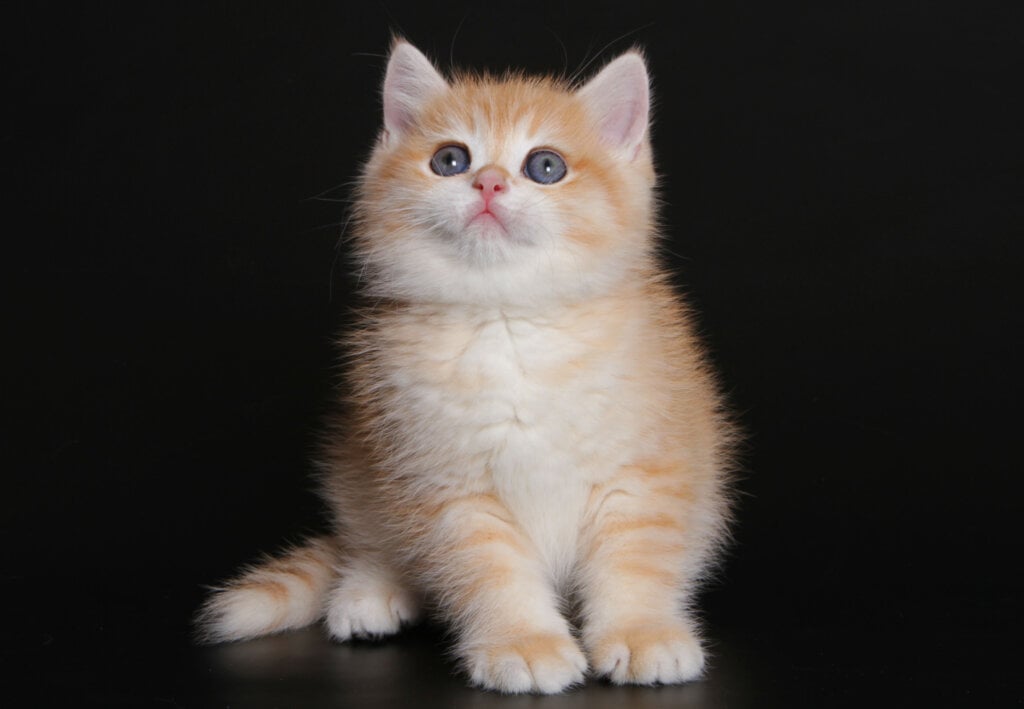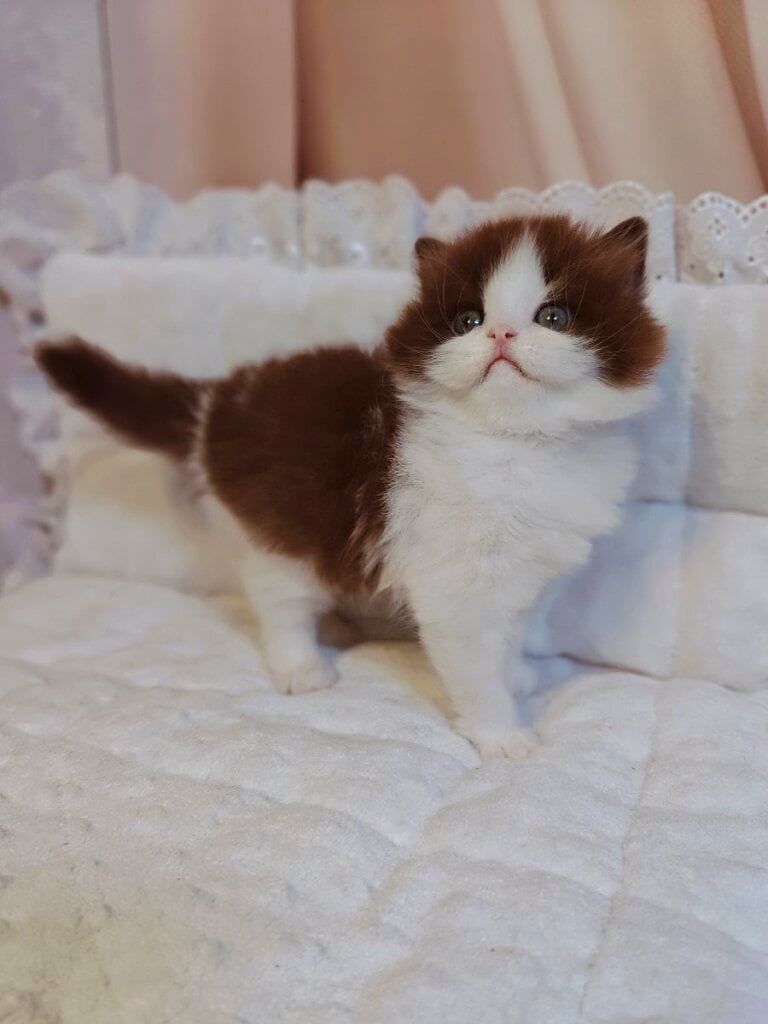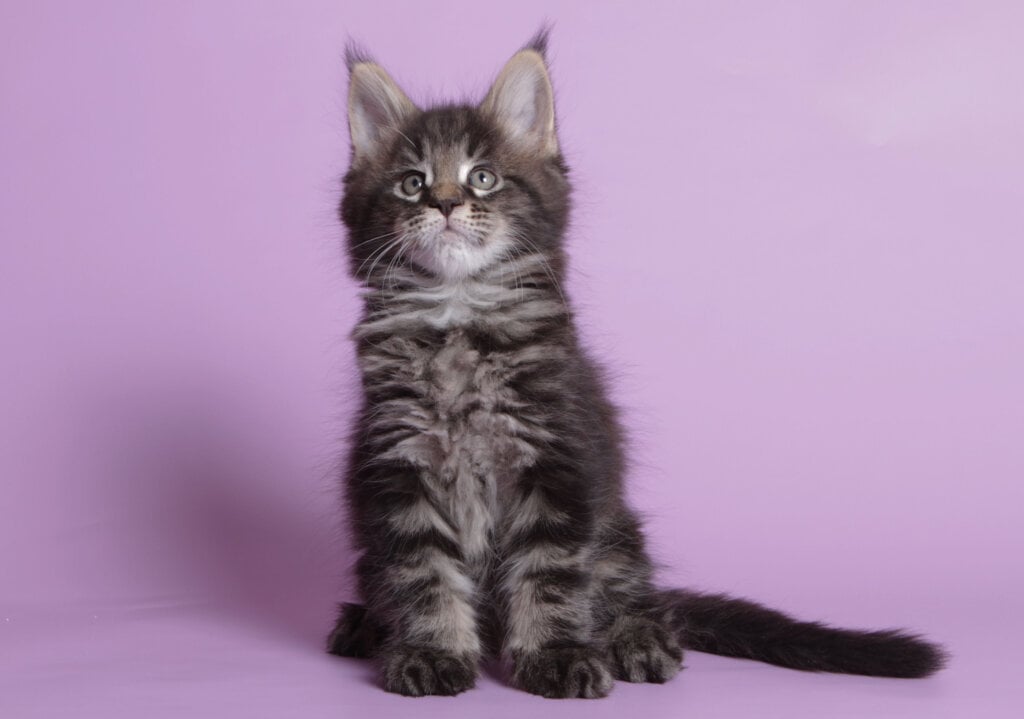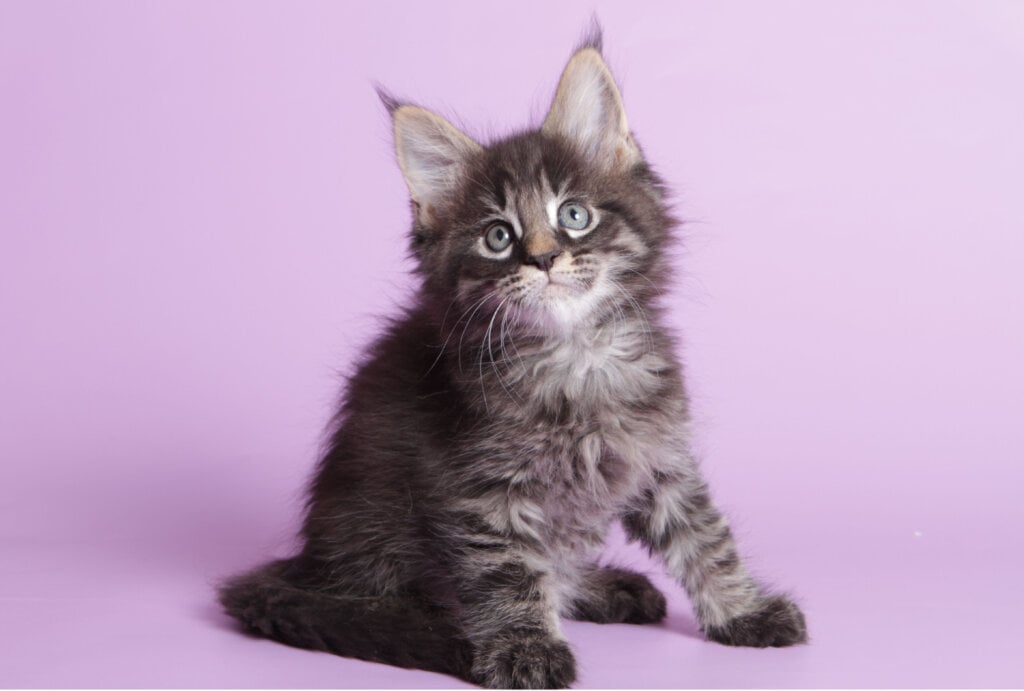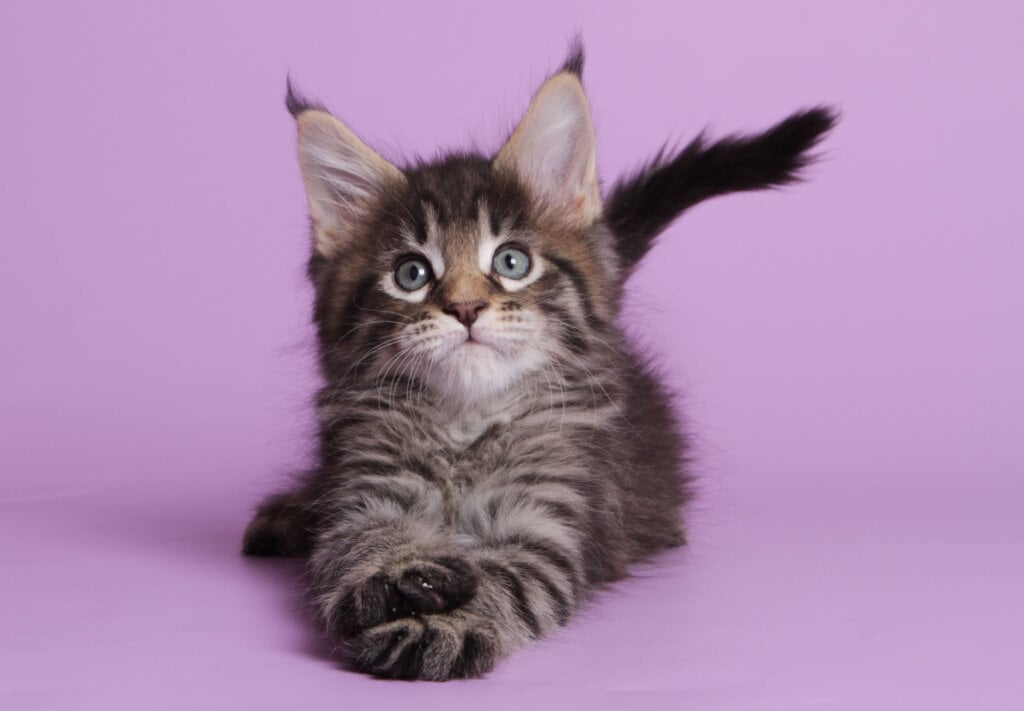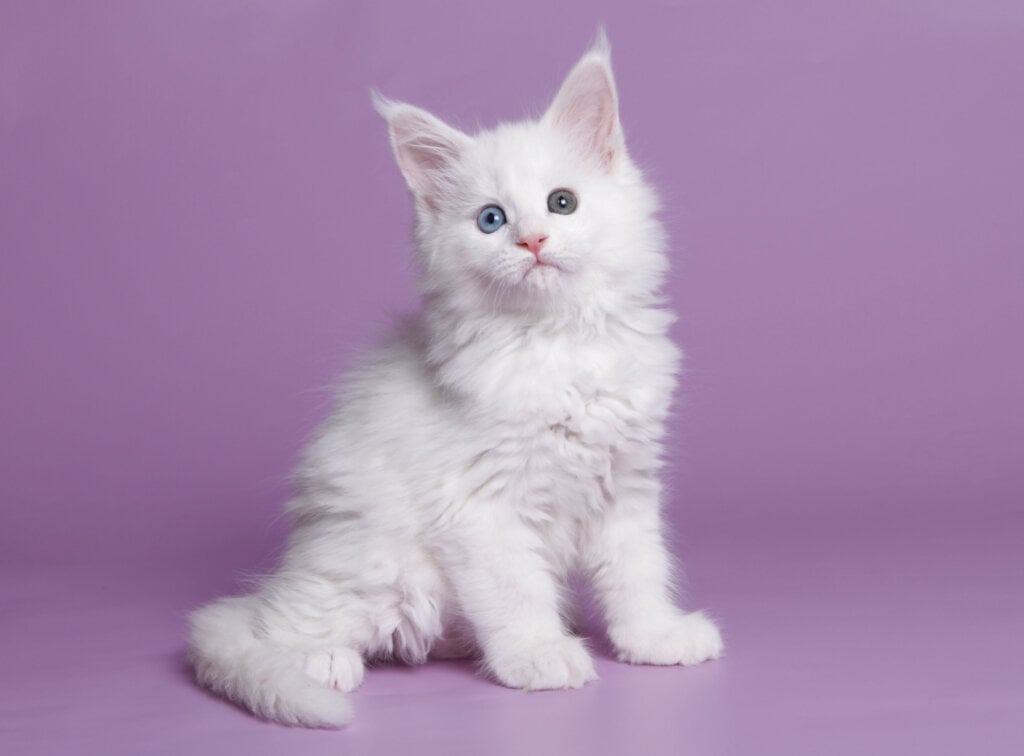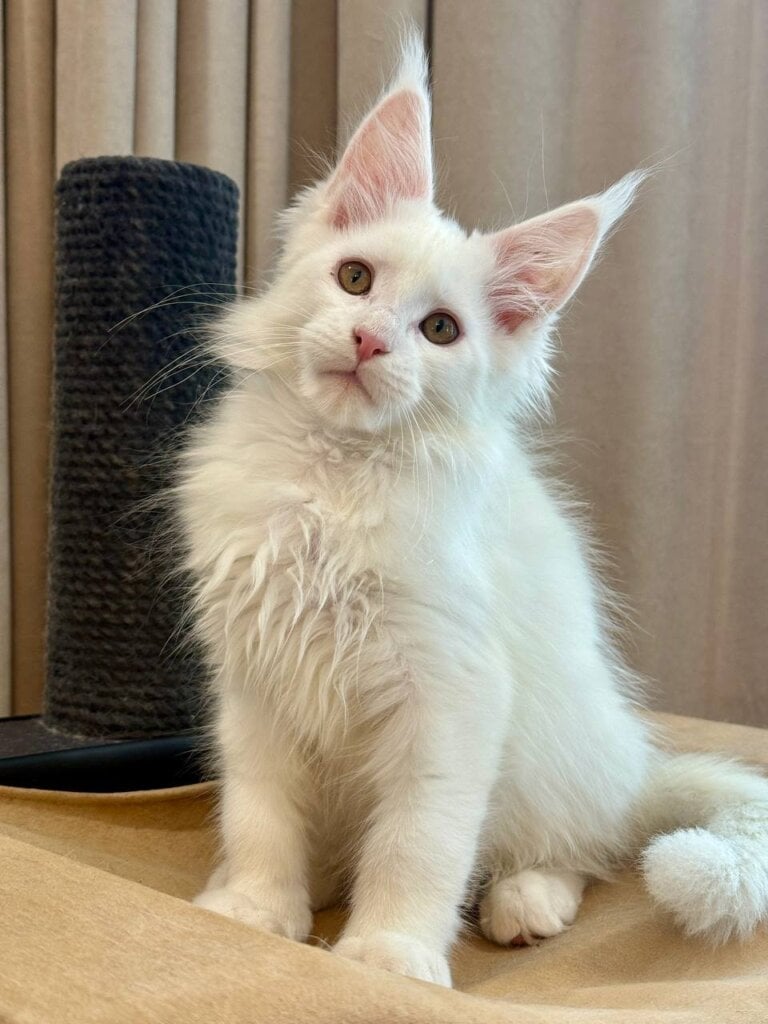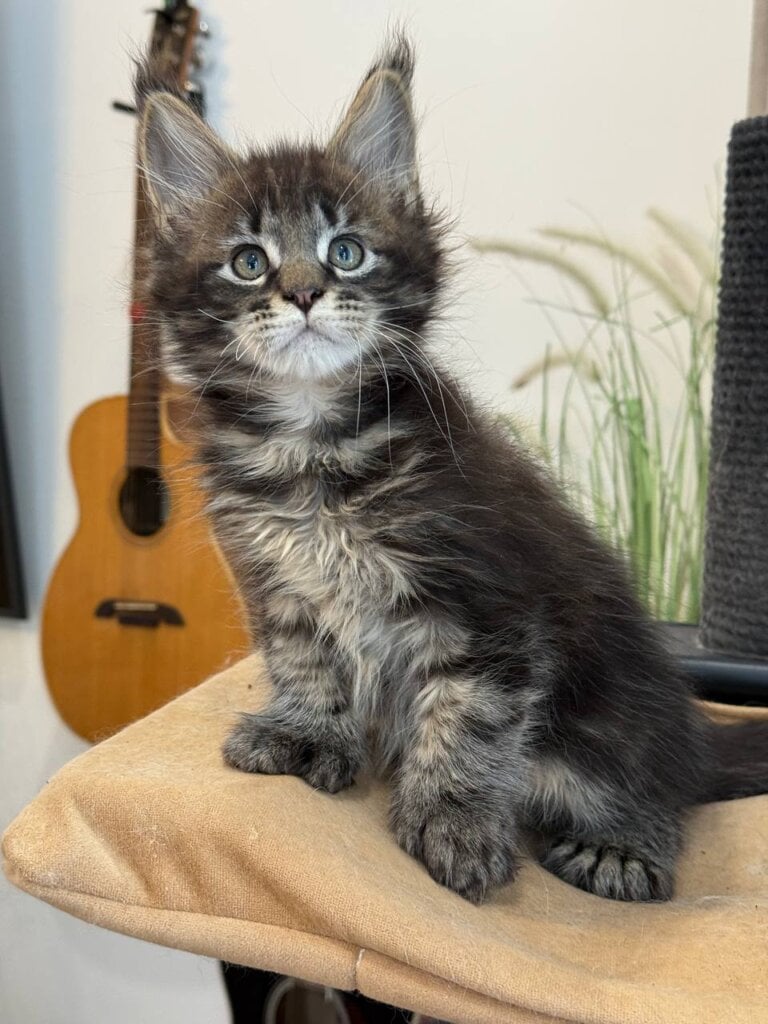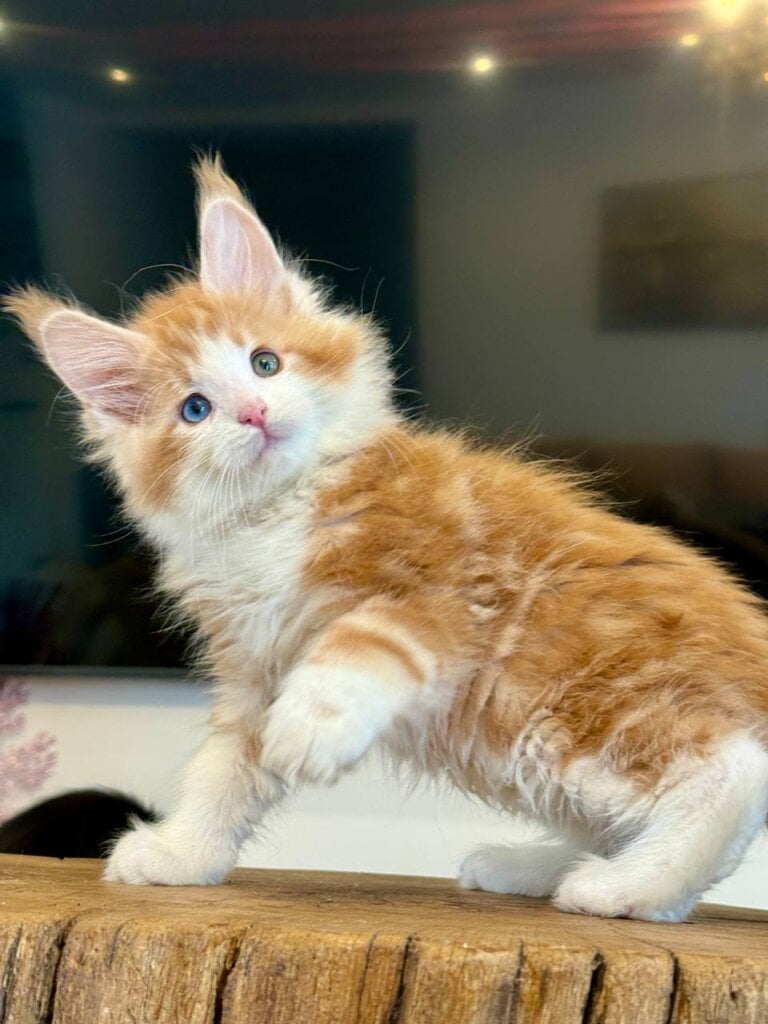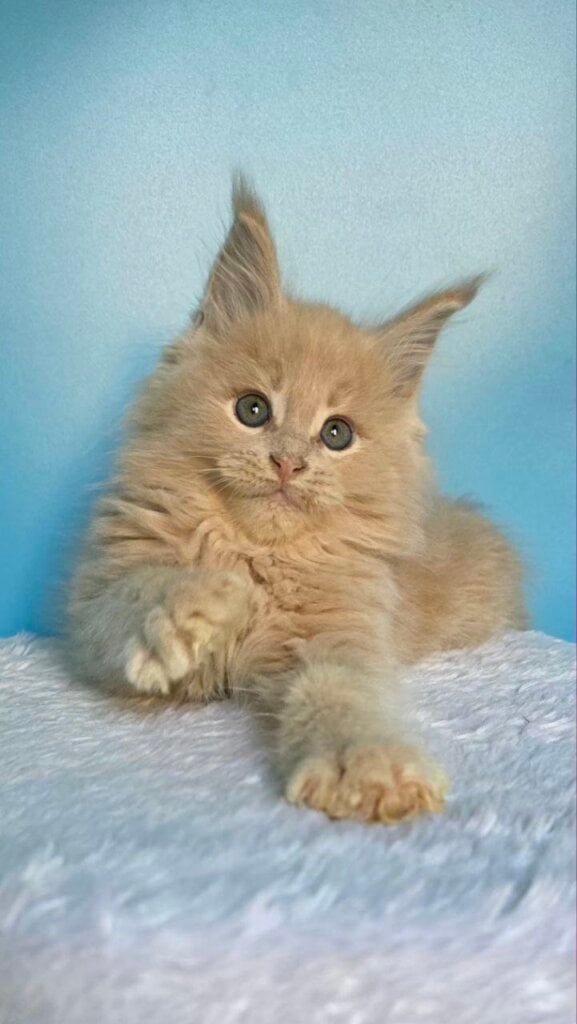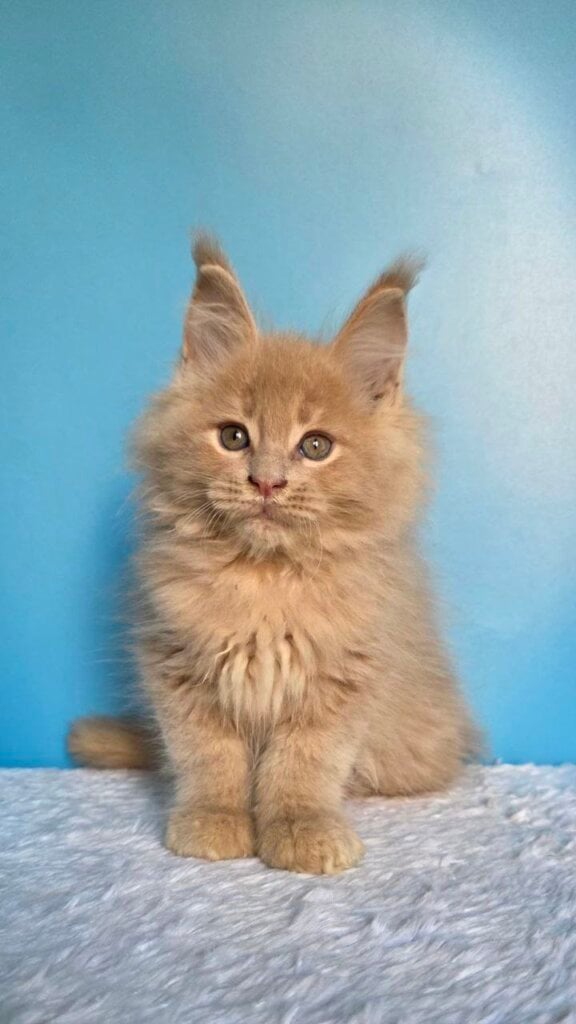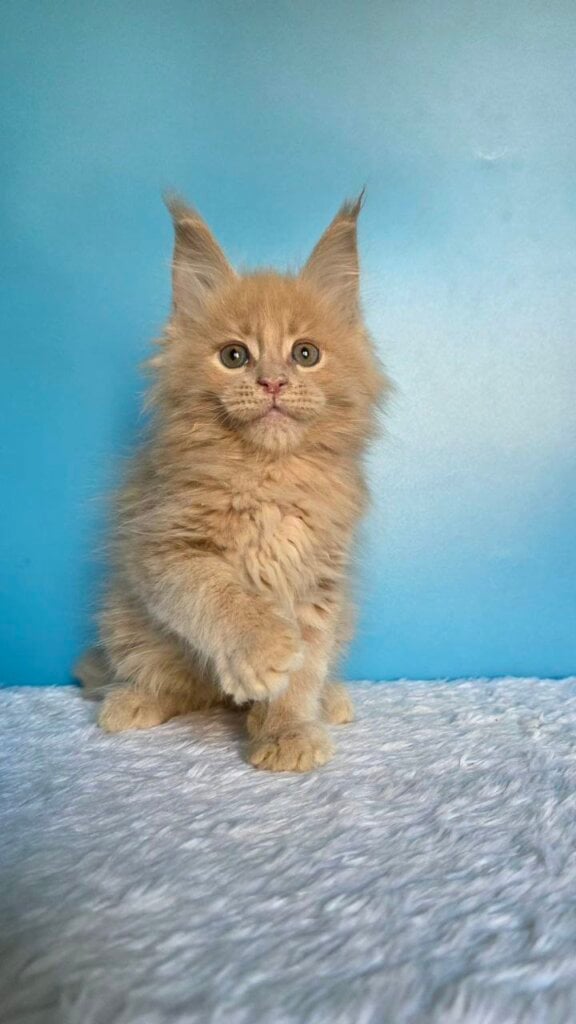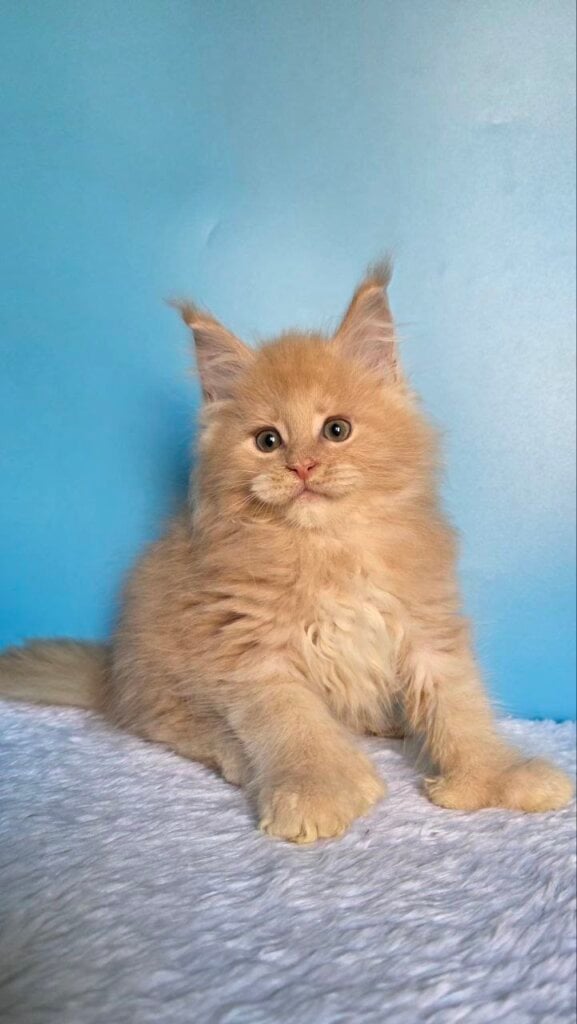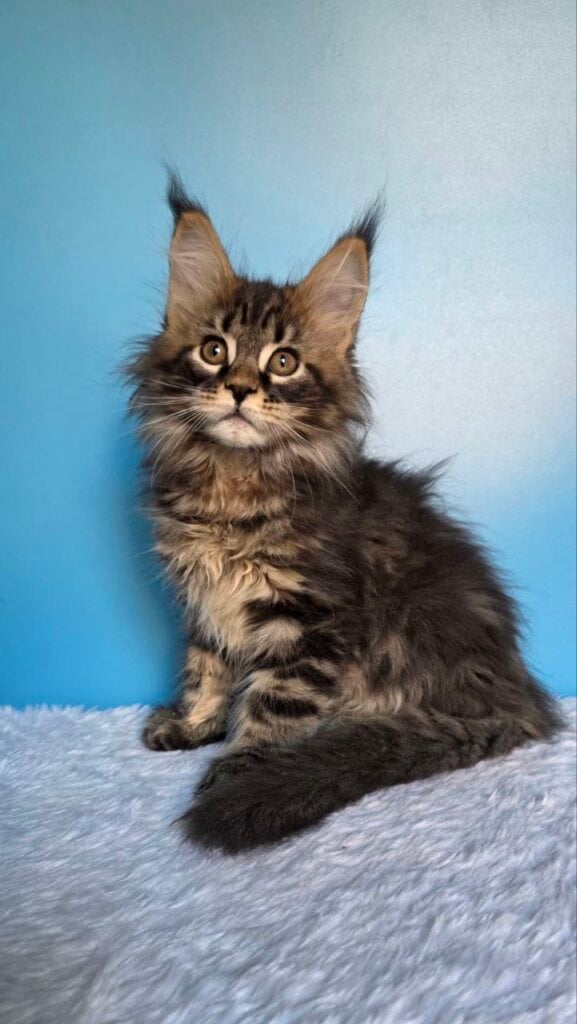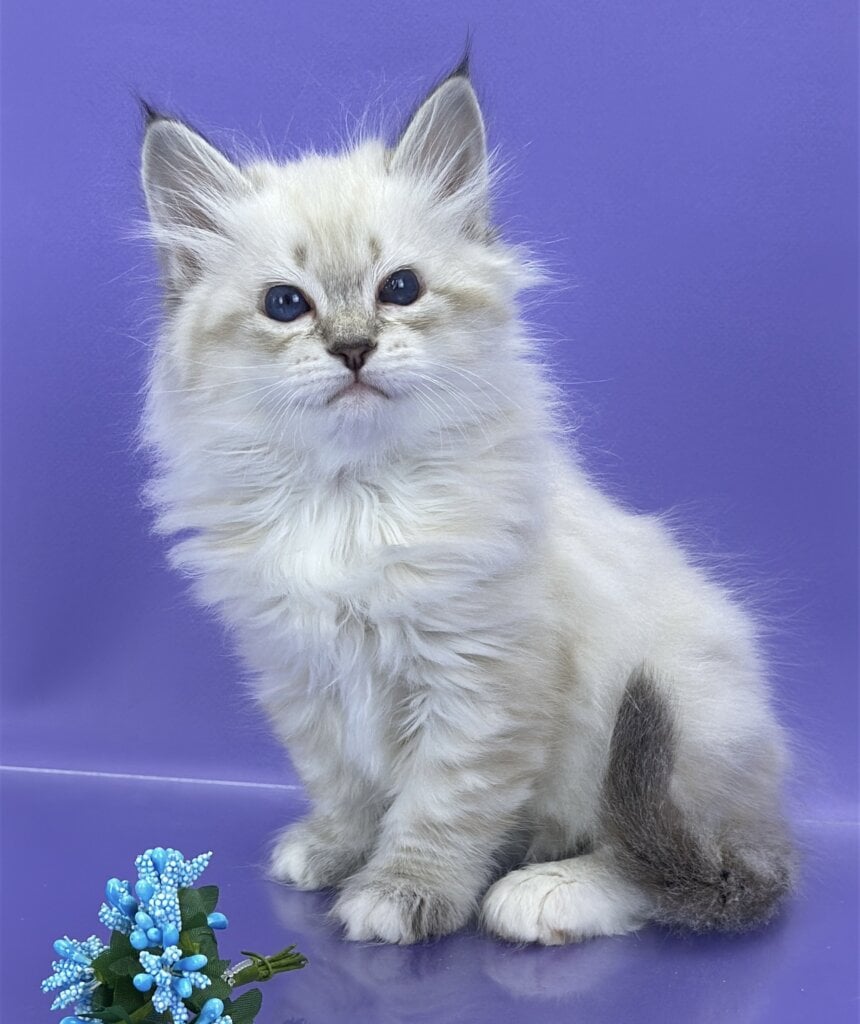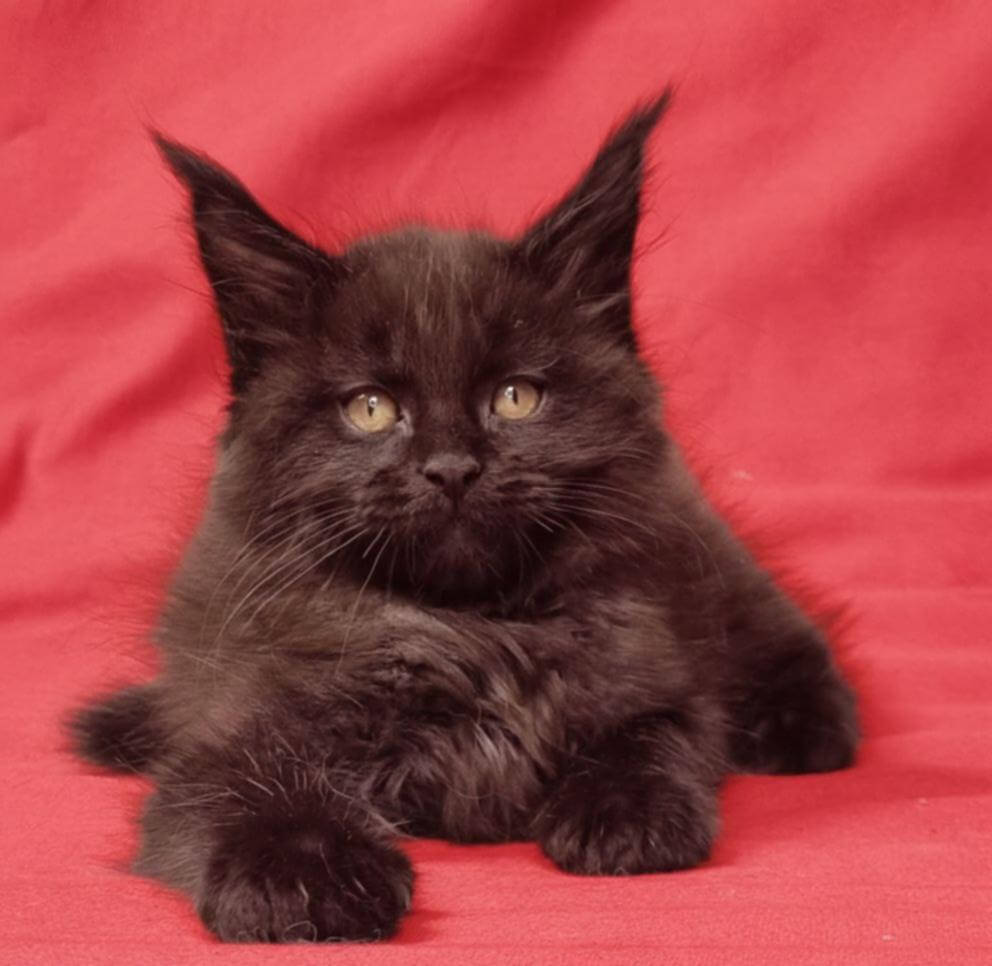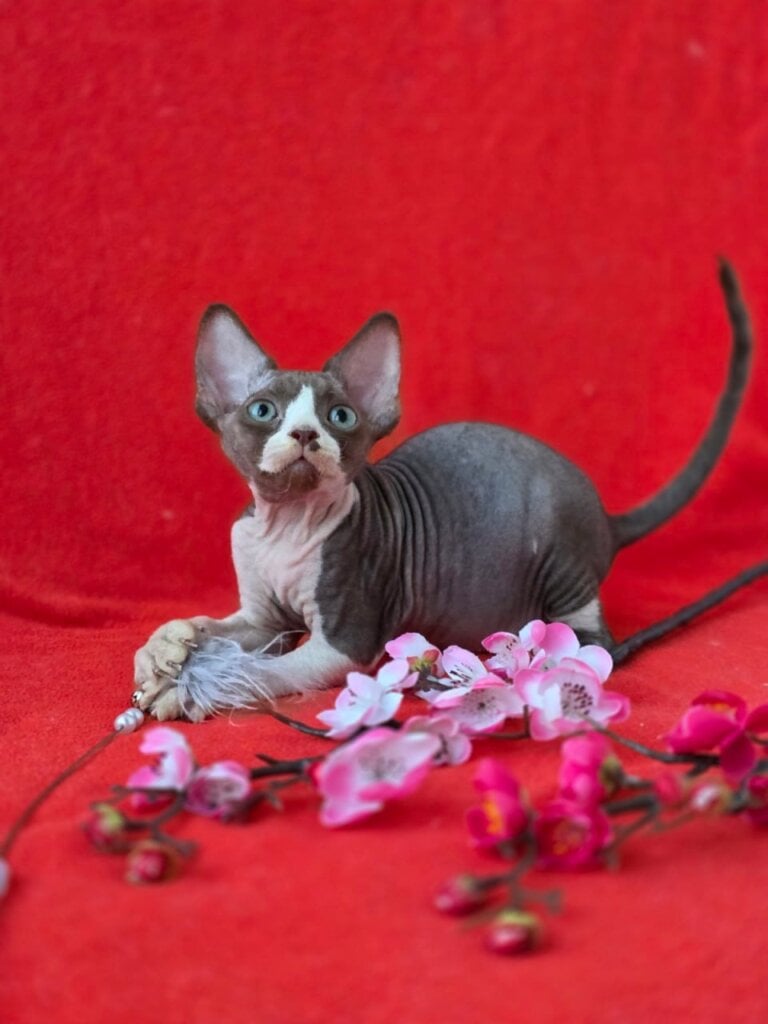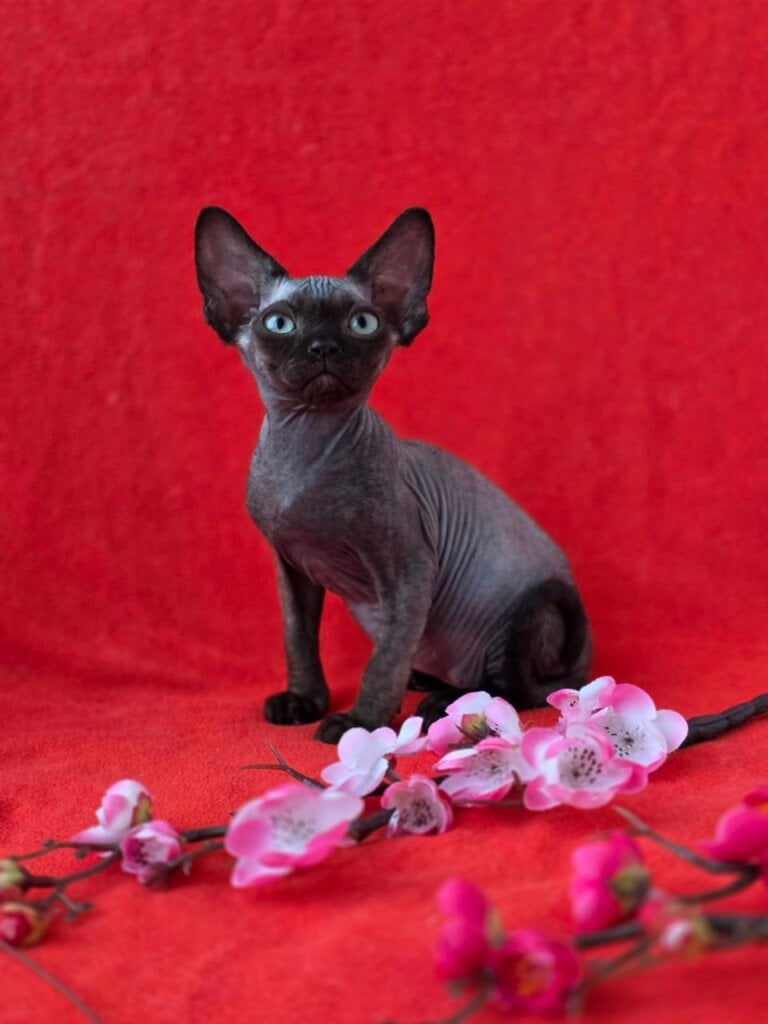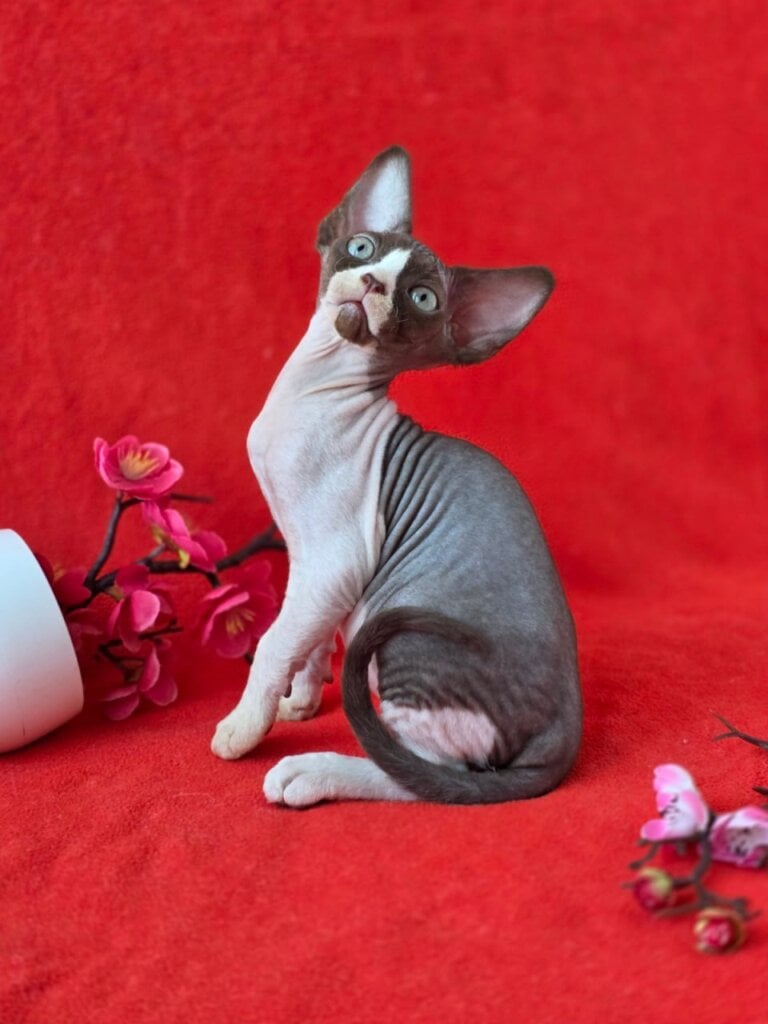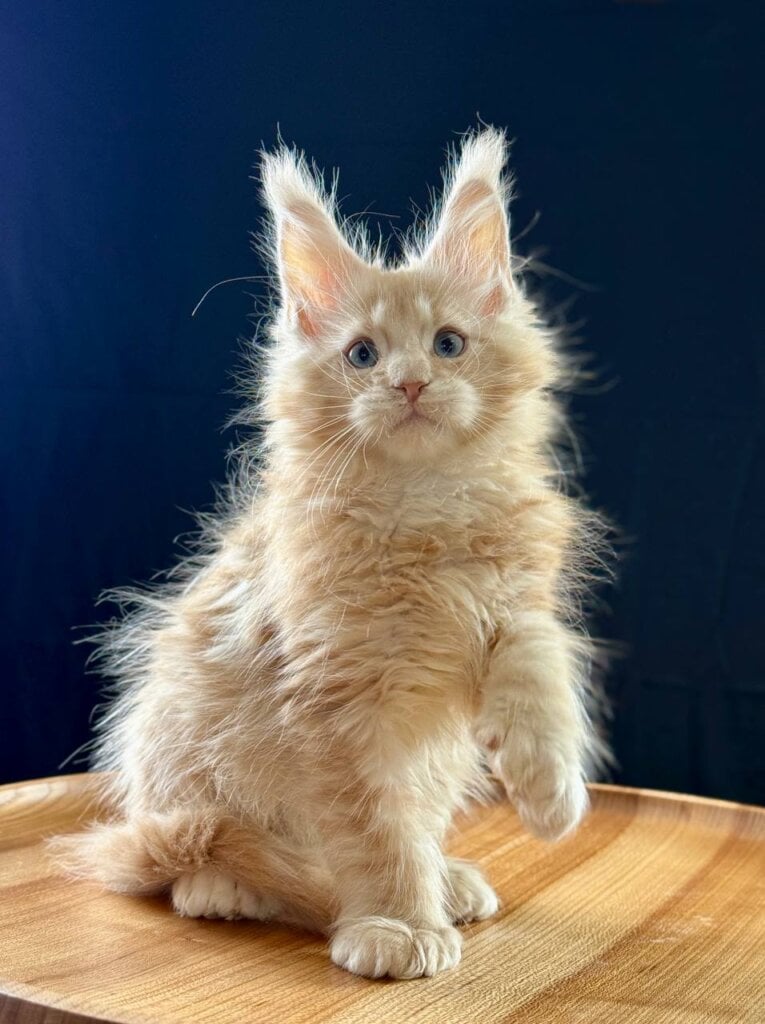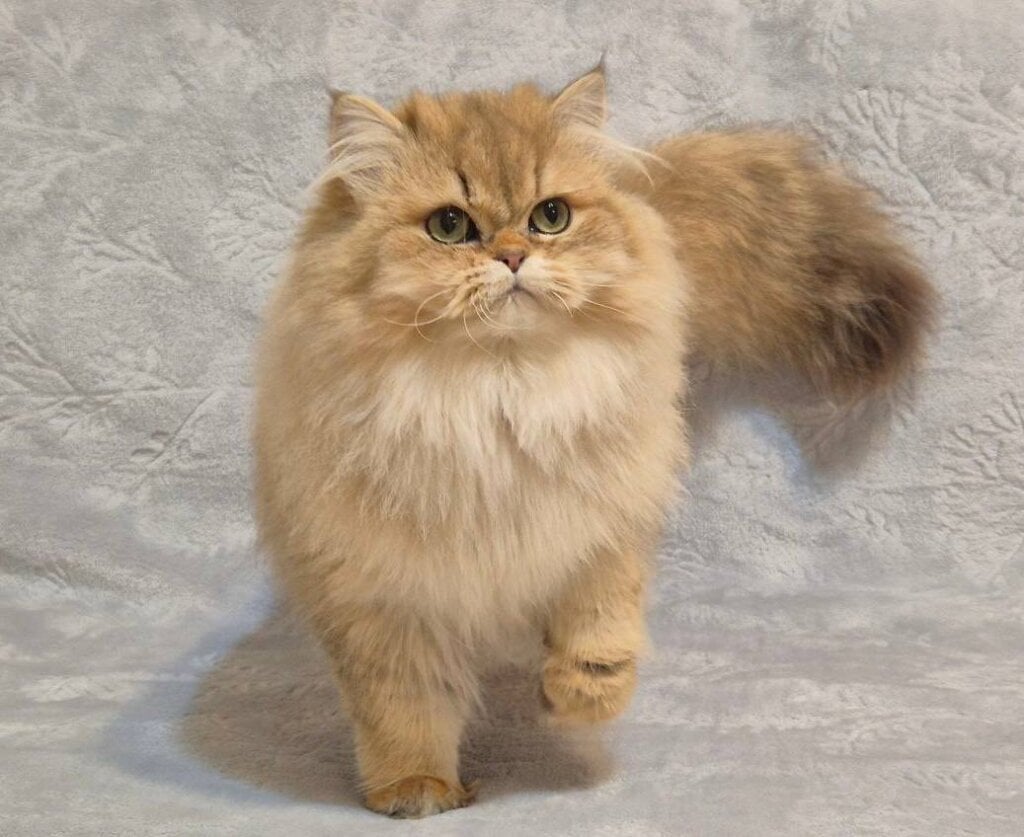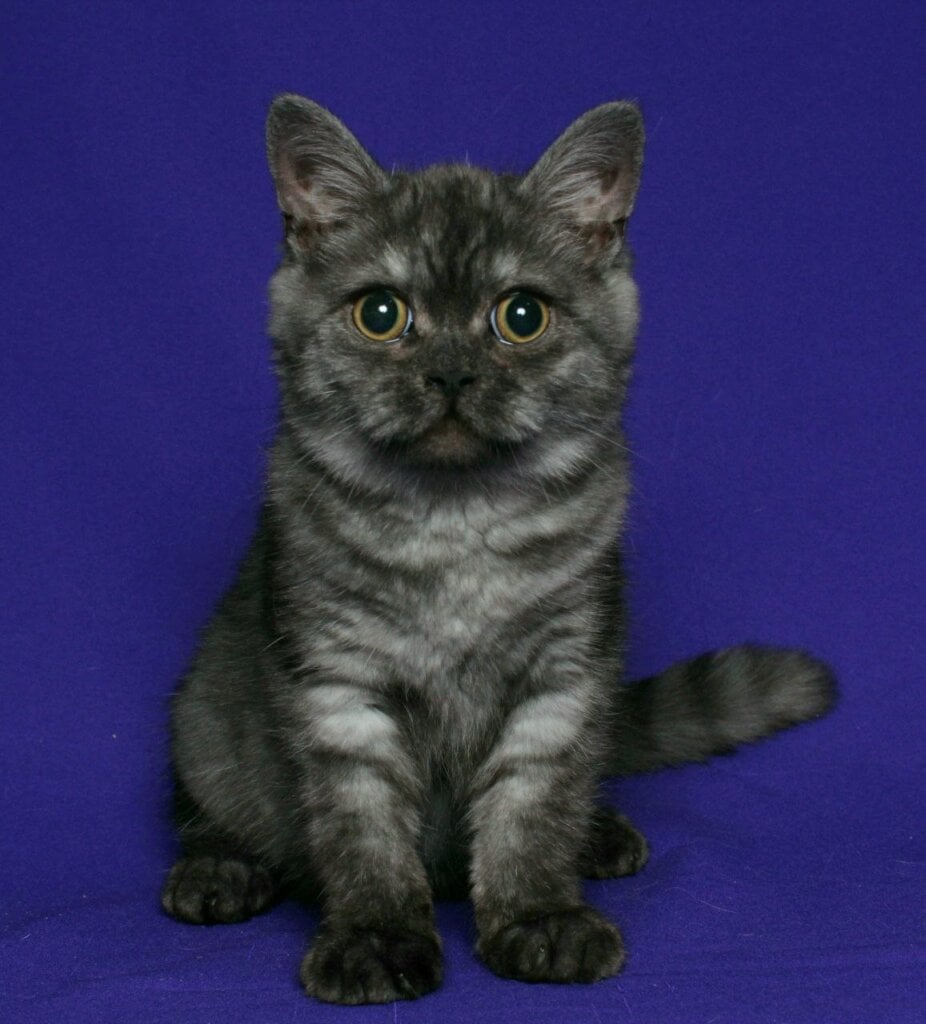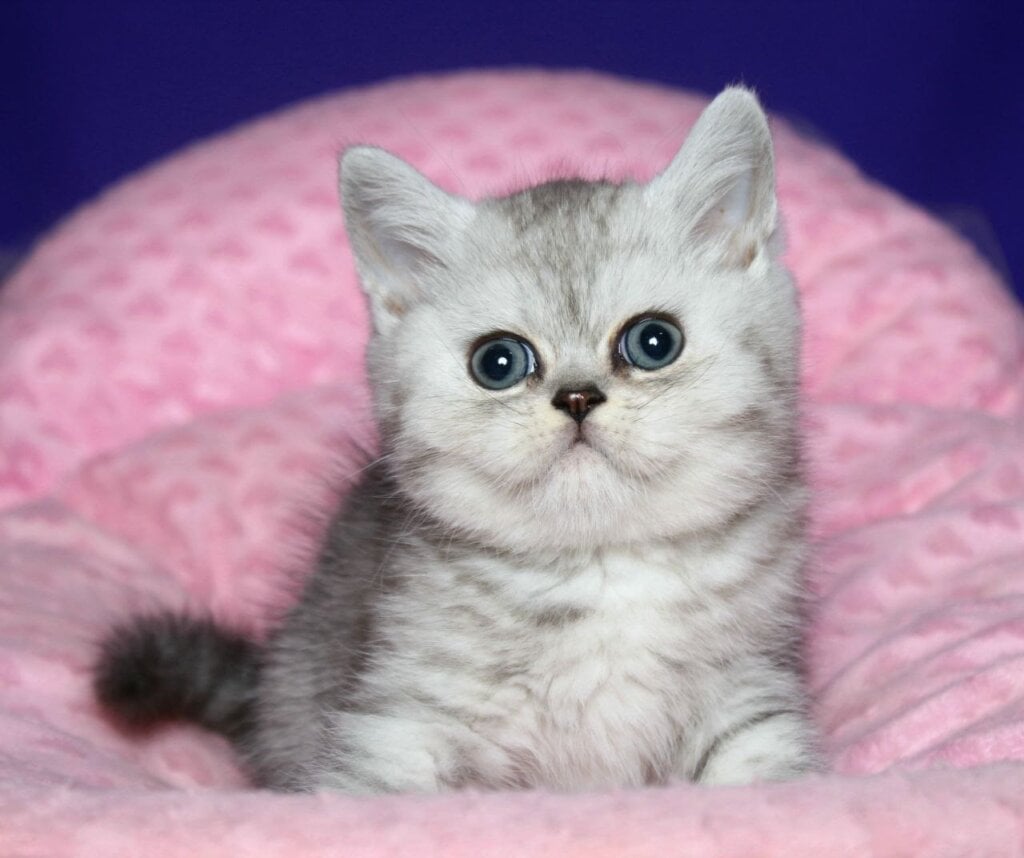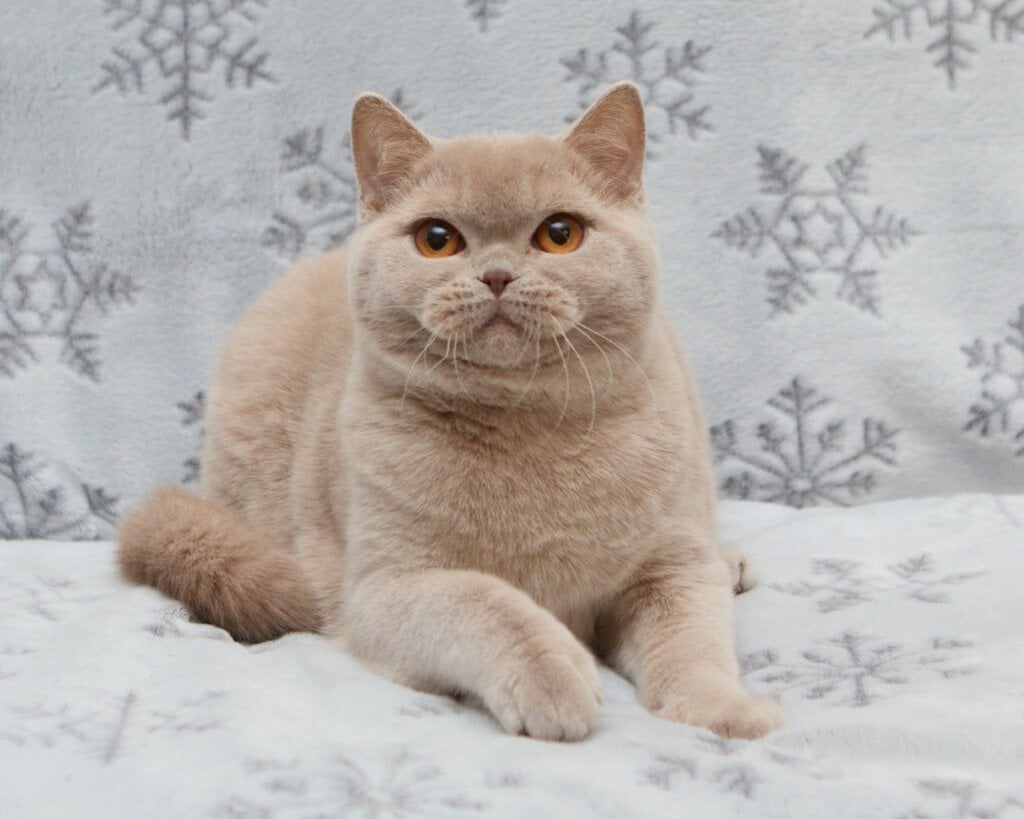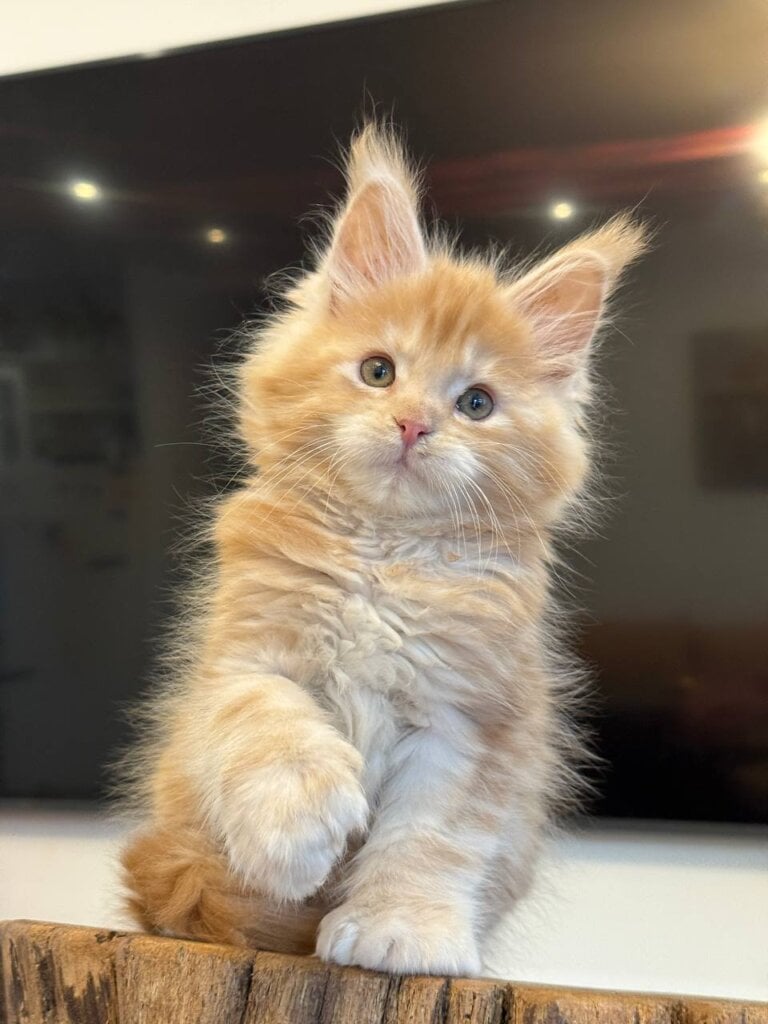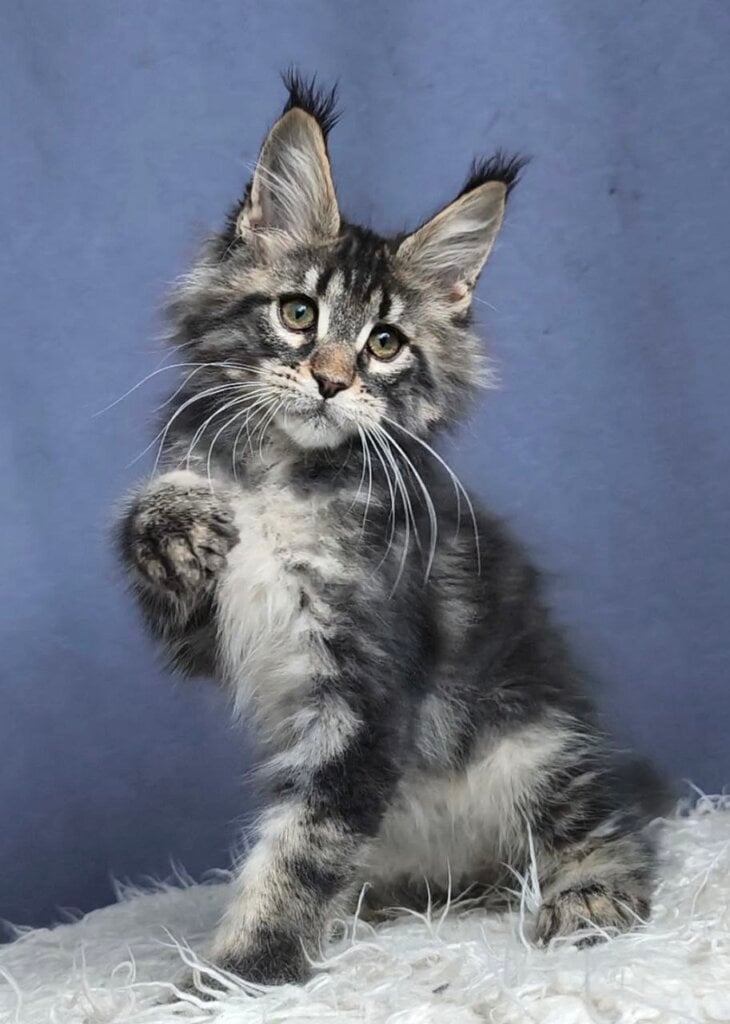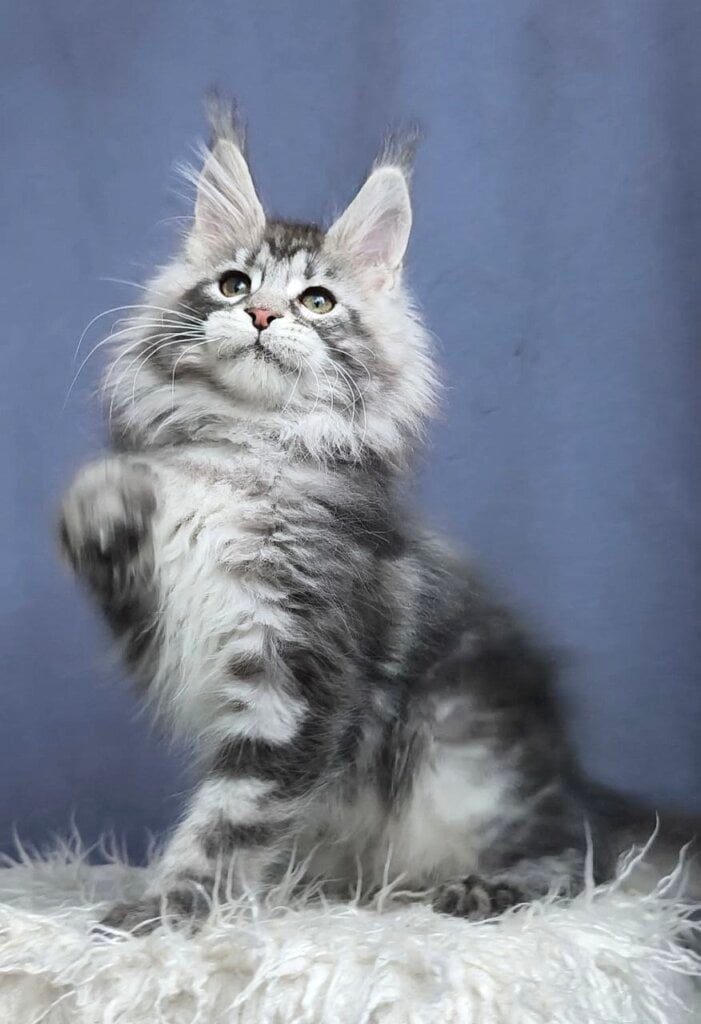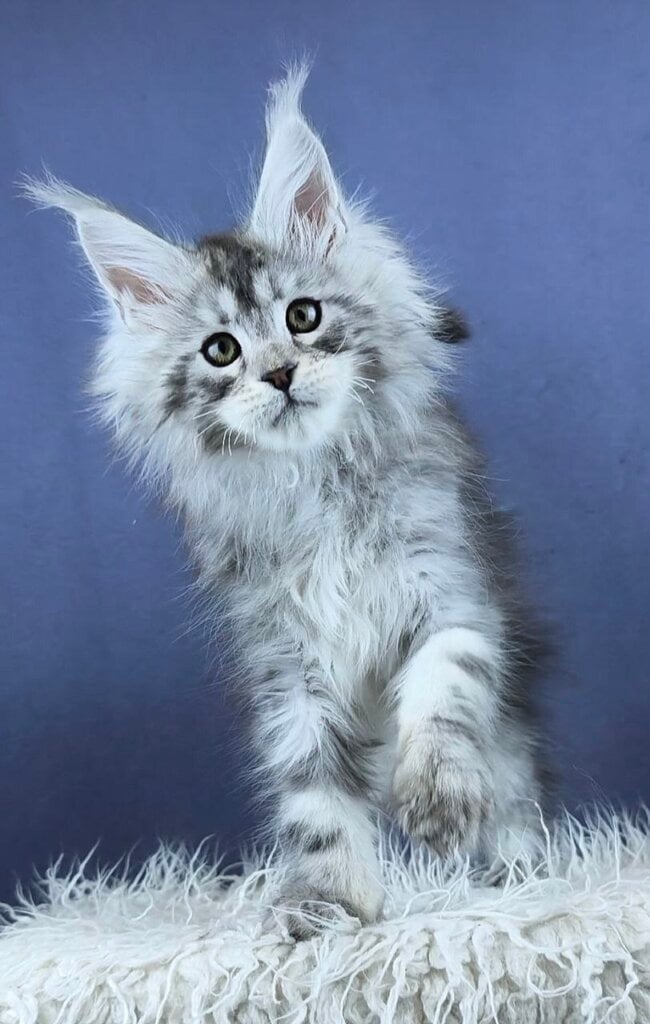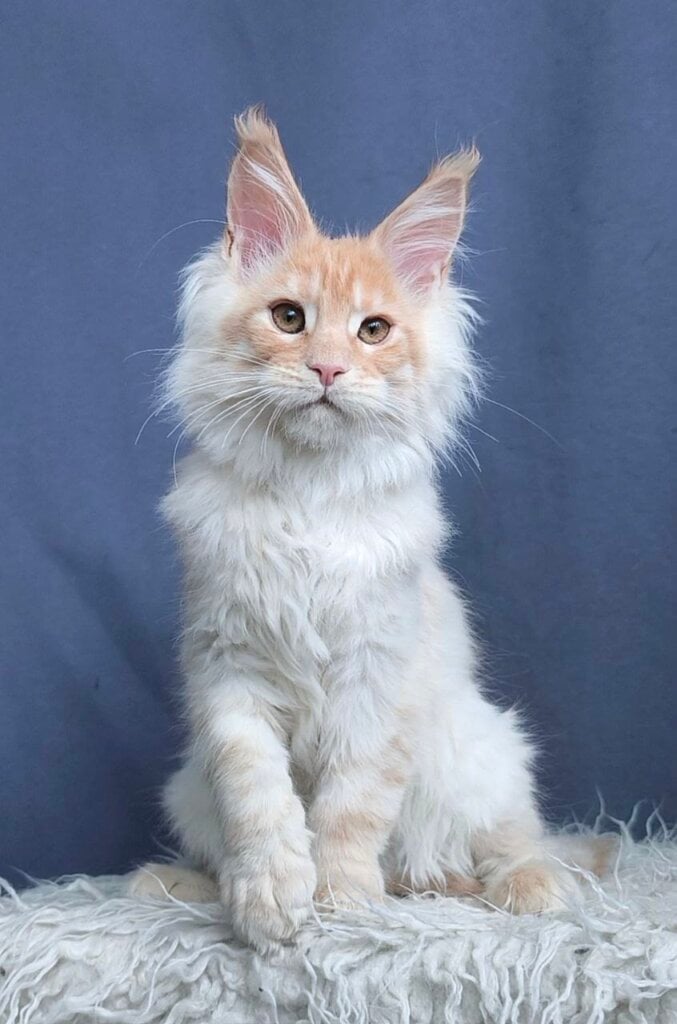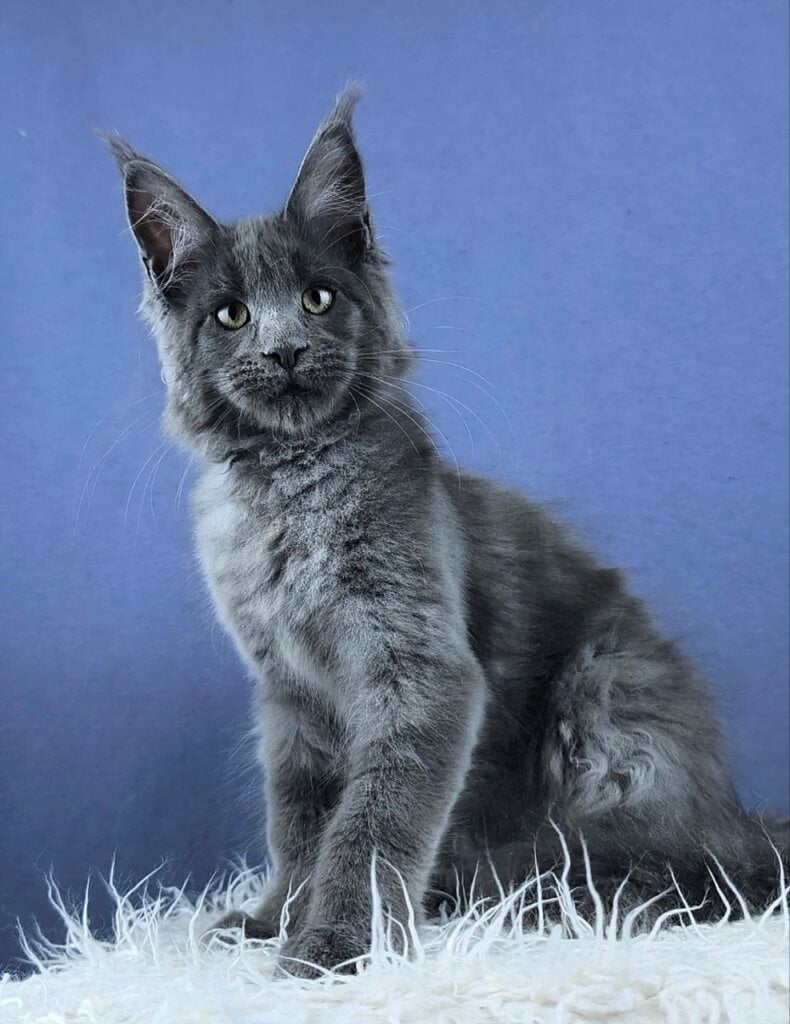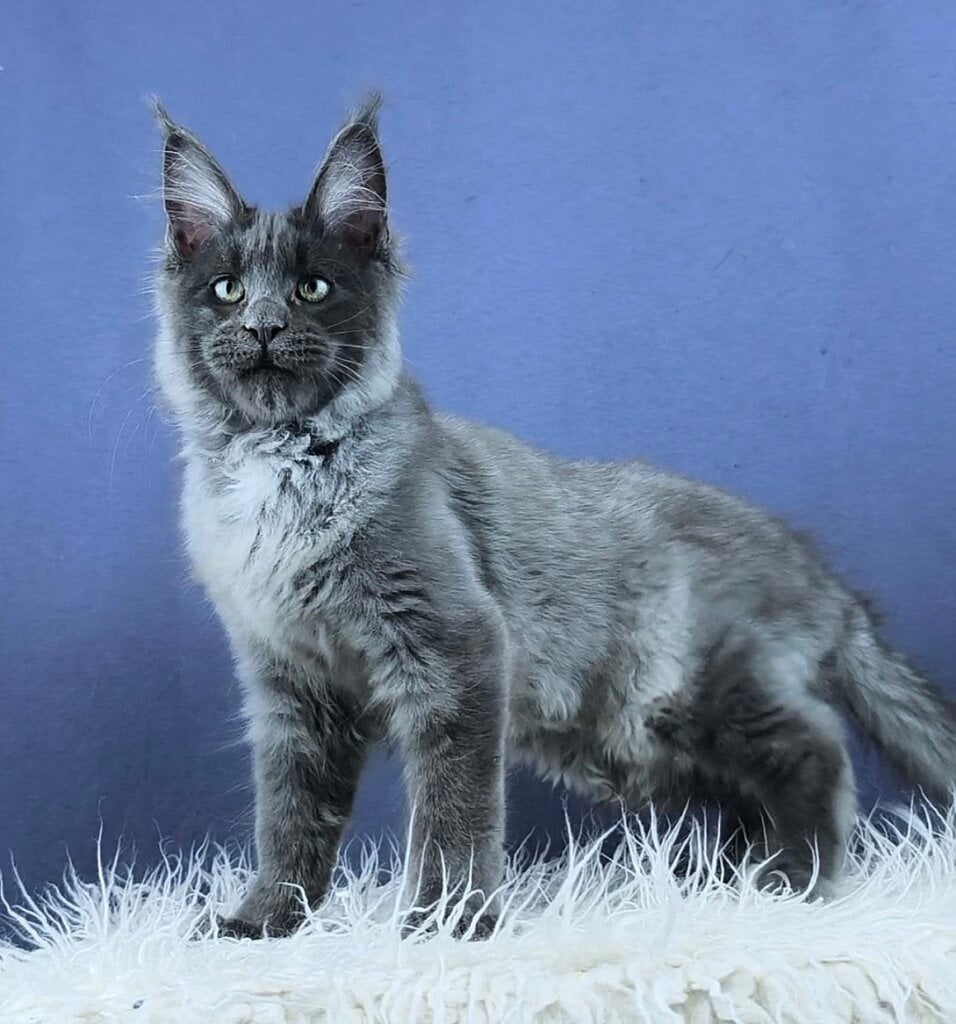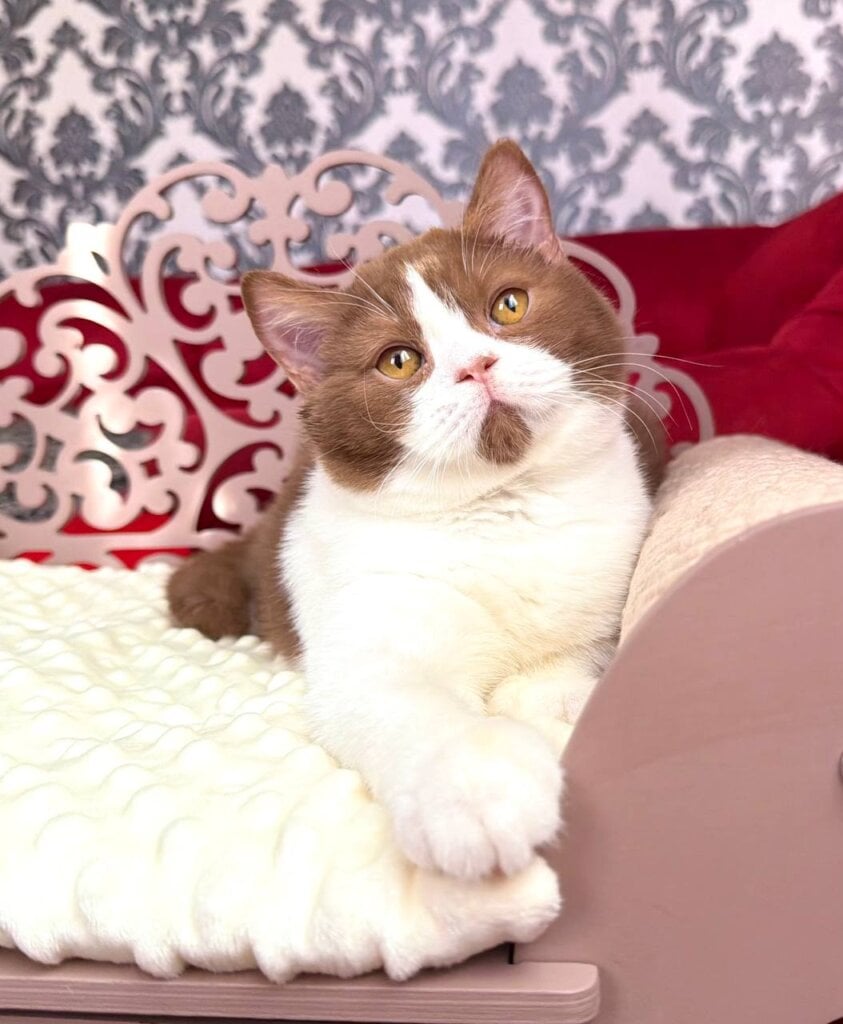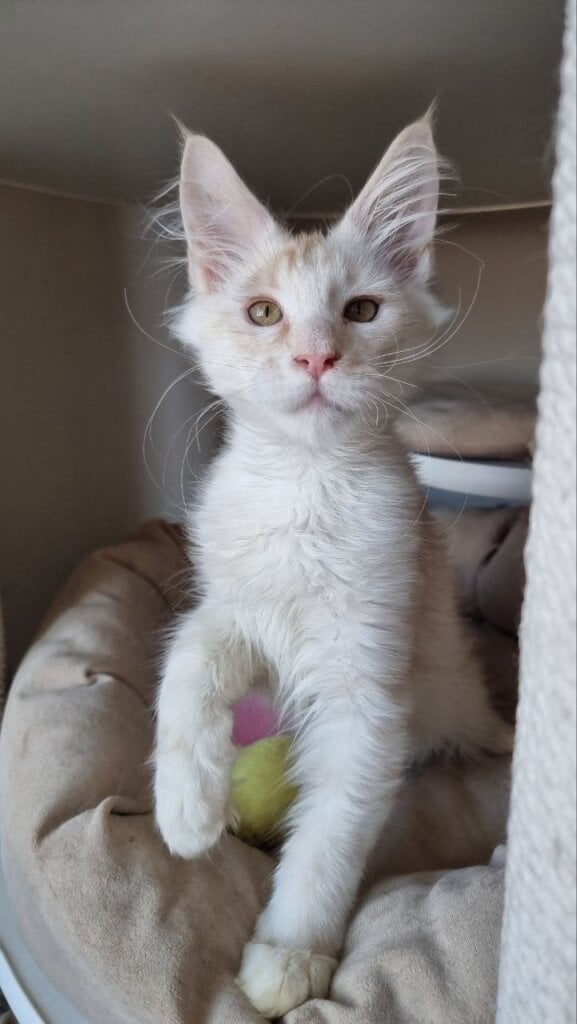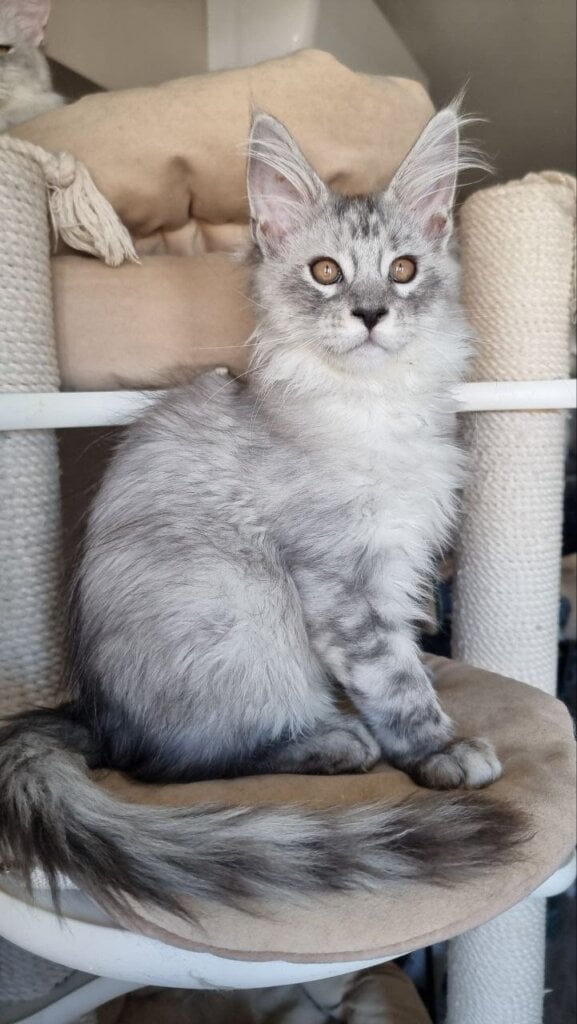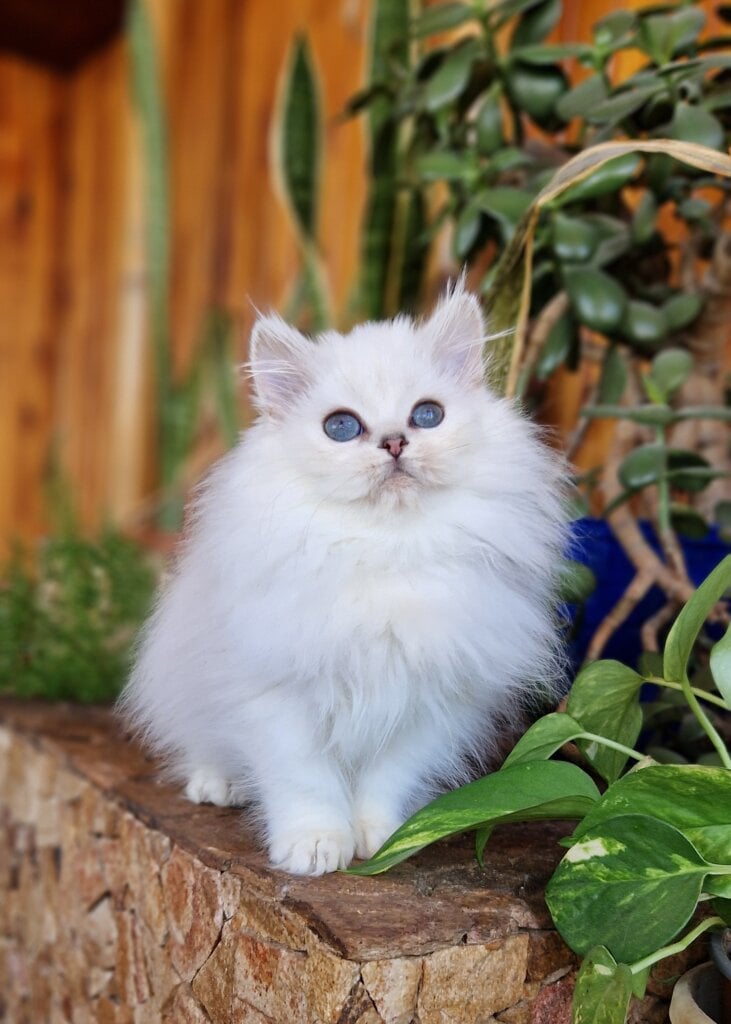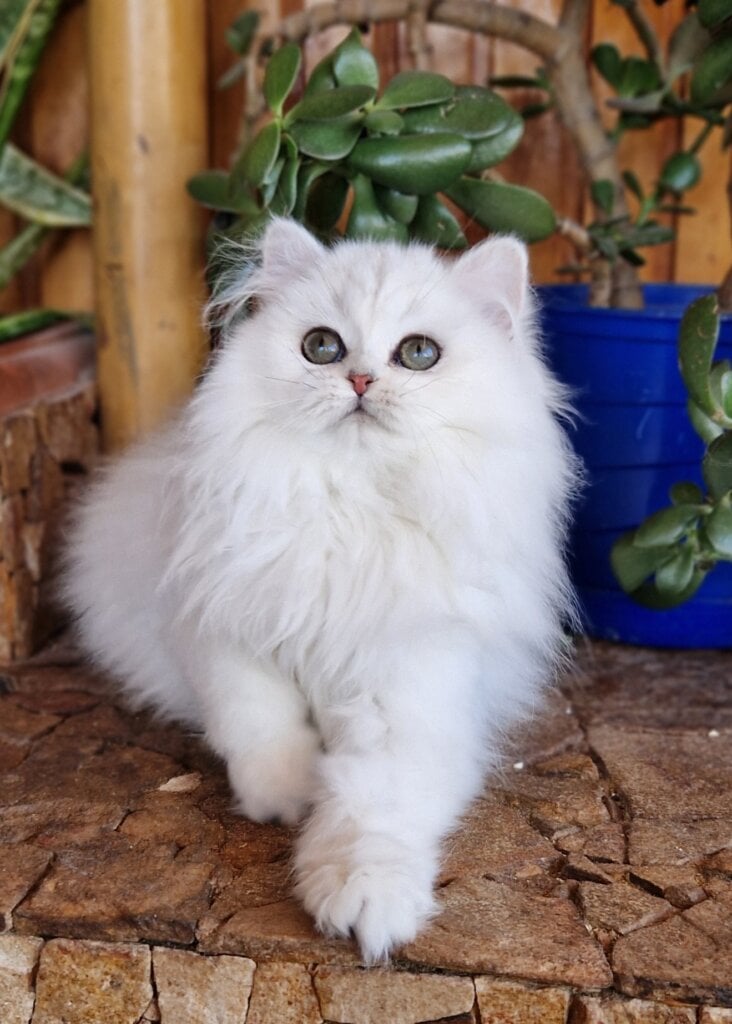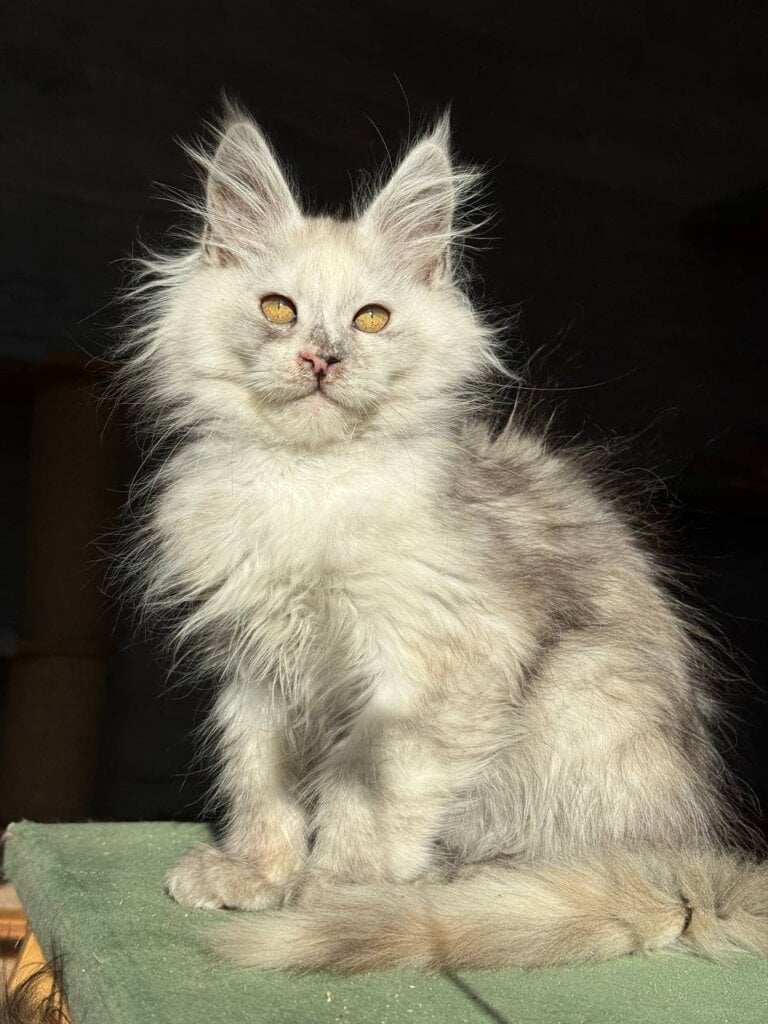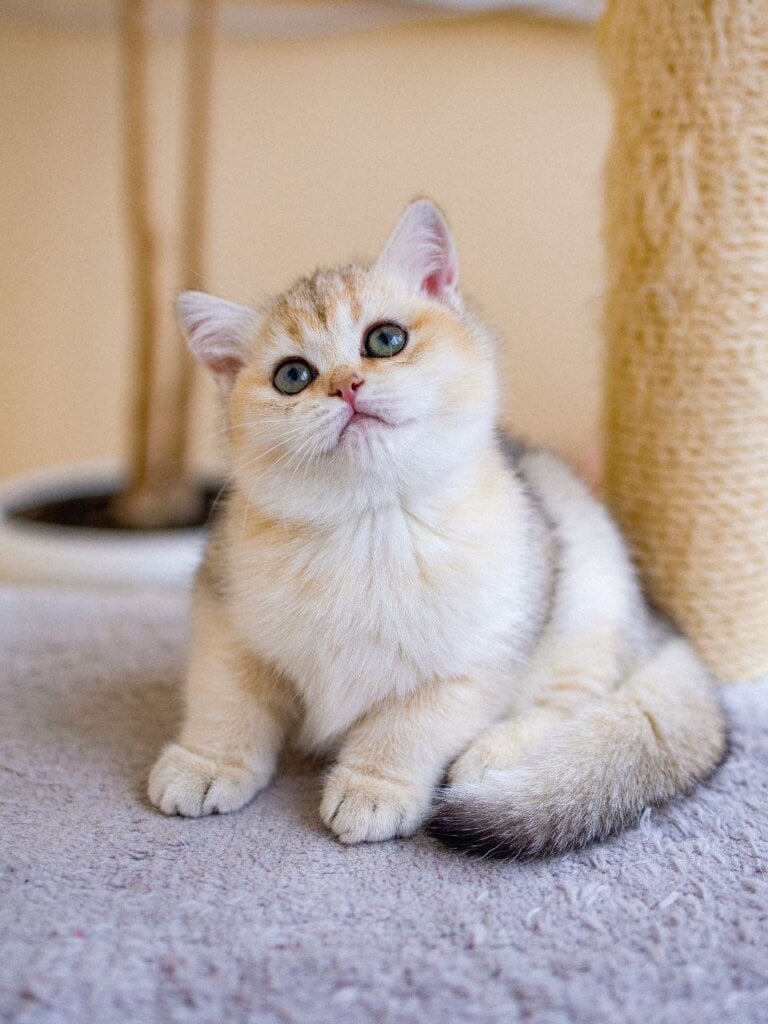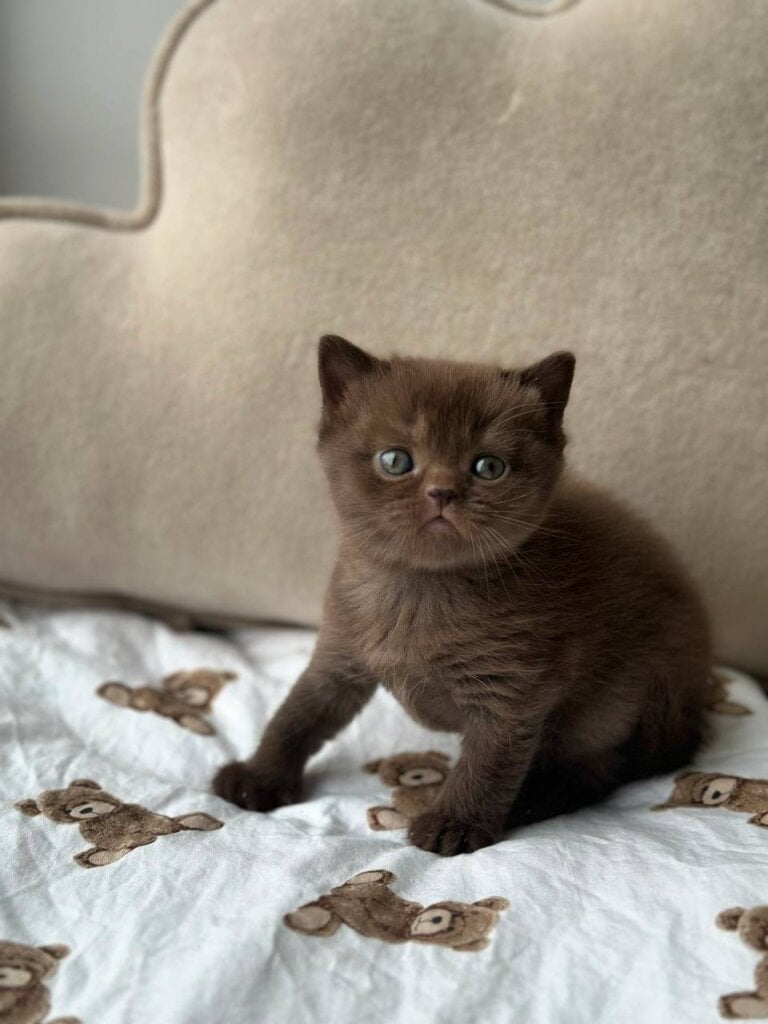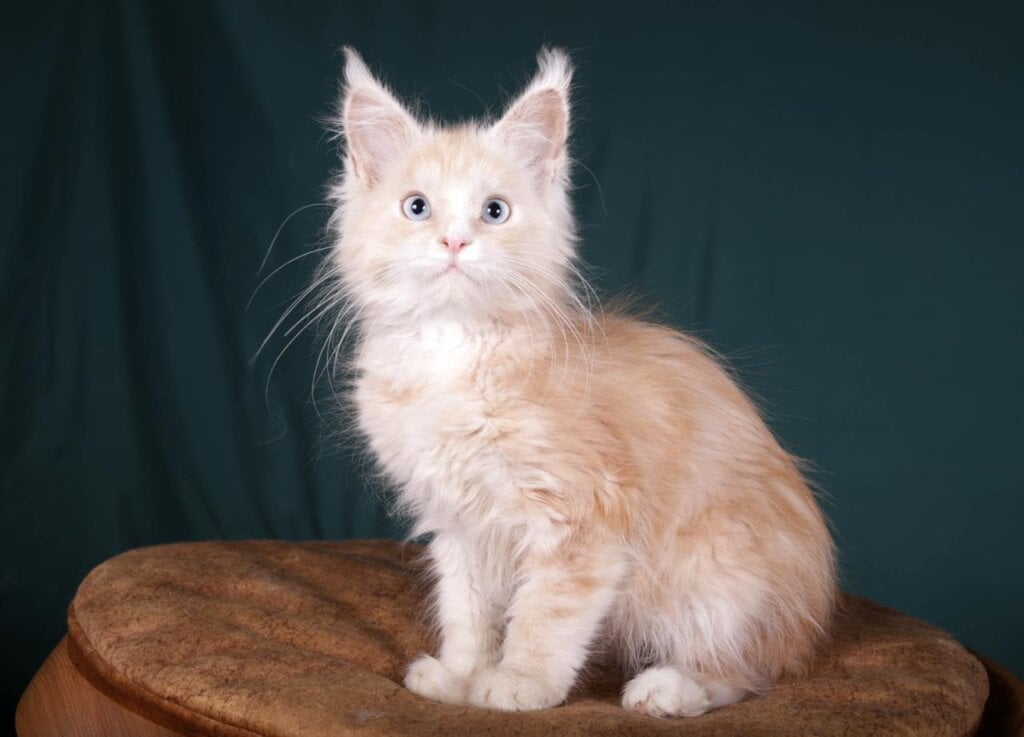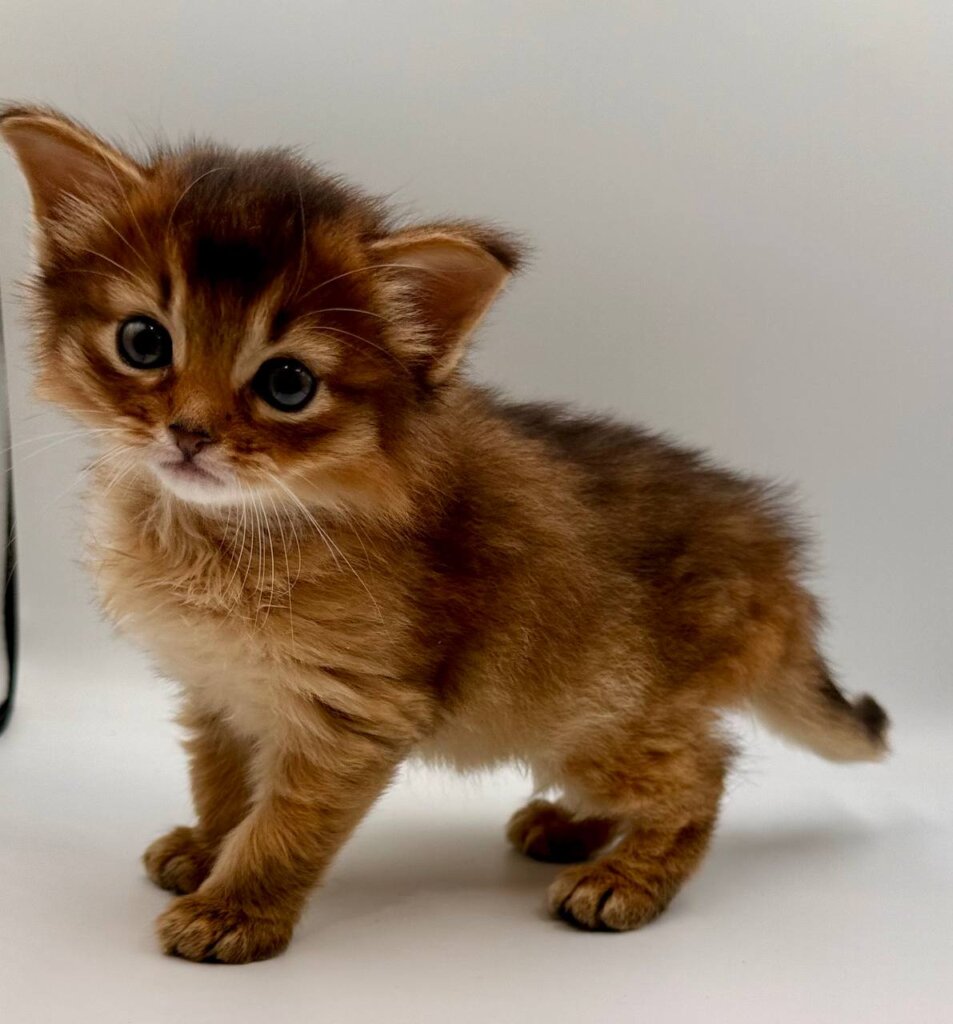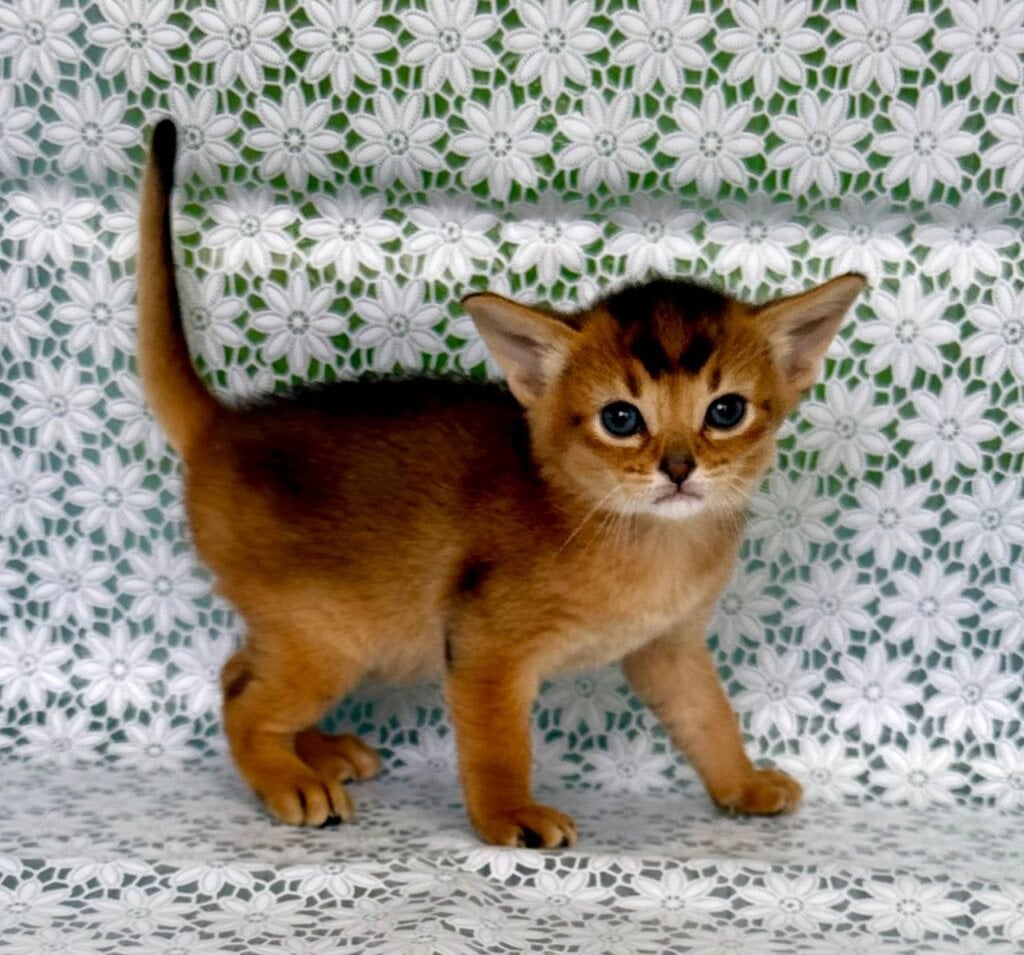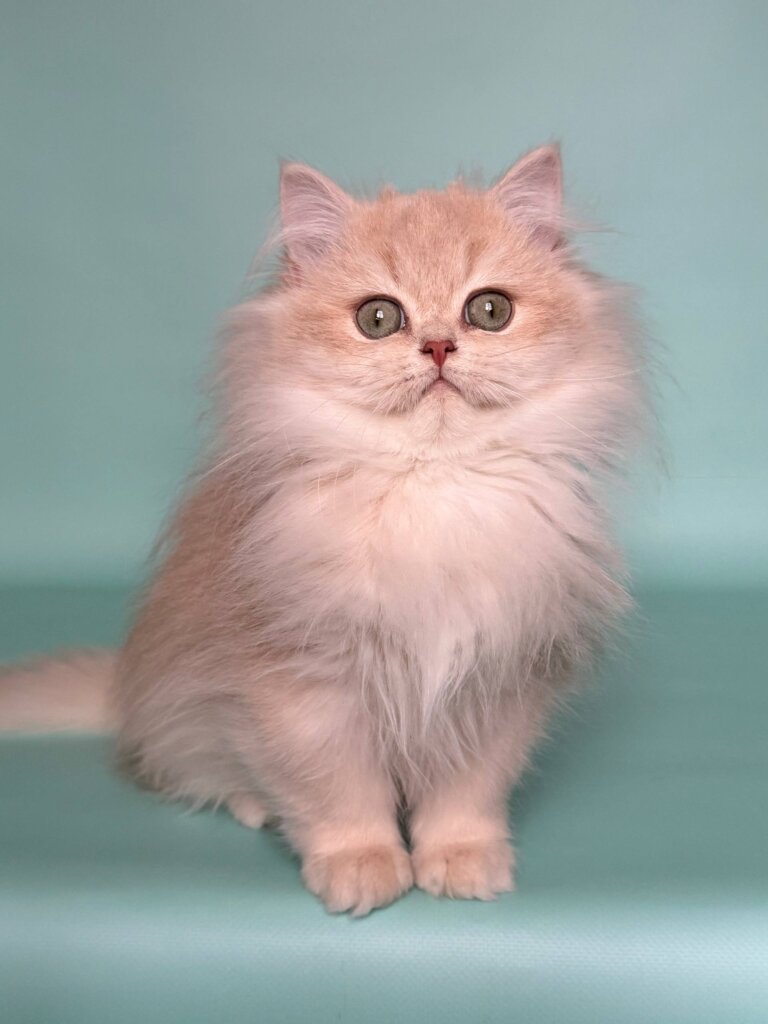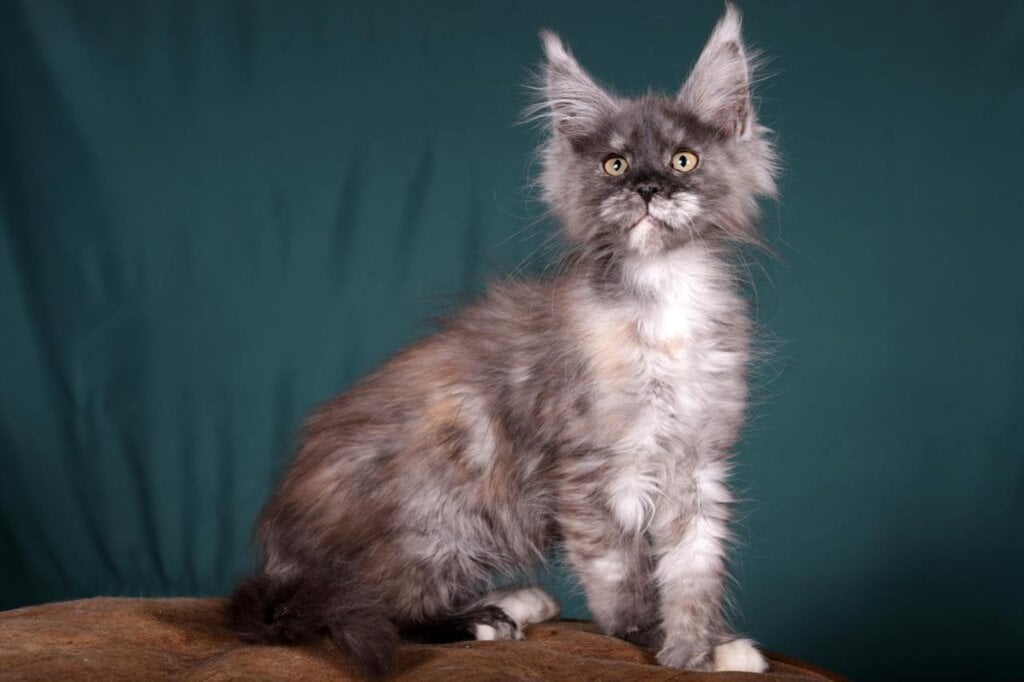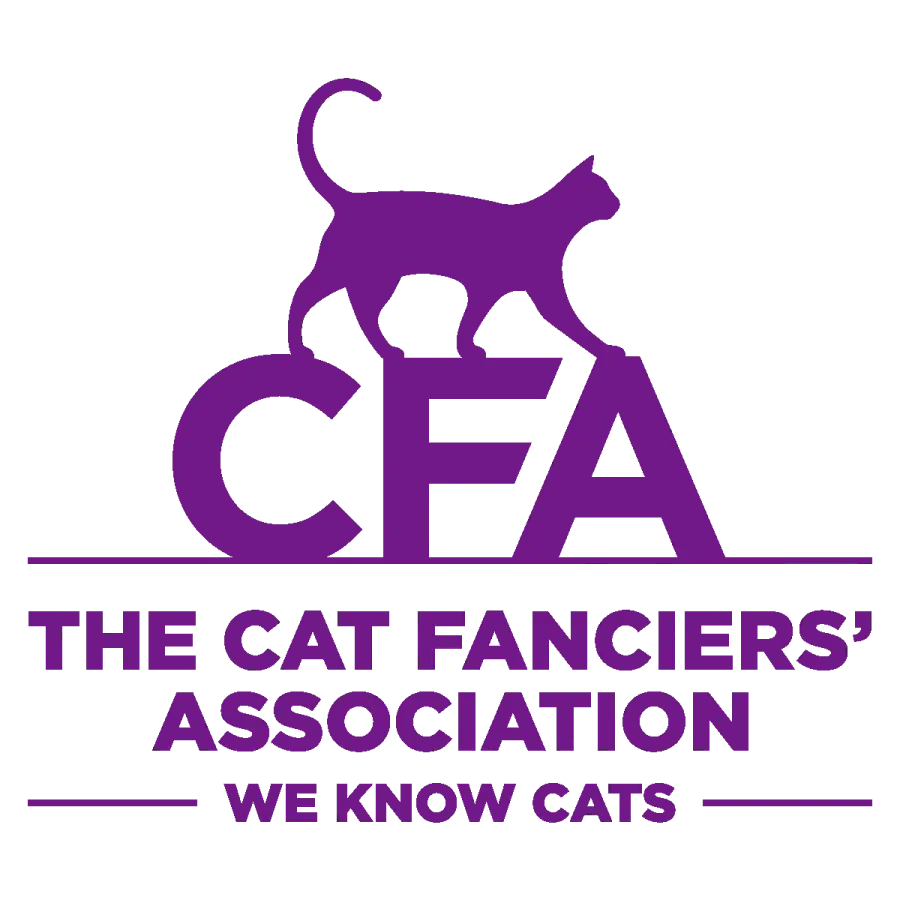- Maine Coons are naturally social, affectionate, and playful cats, but understanding the difference between normal and problematic behaviors is essential for effective care. Understanding their individual needs will go a long way in avoiding any behavioral misunderstanding.
- Other common behavior problems are separation anxiety, compulsive scratching, vocalization and litter box avoidance. These issues typically stem from boredom, anxiety or other unmet needs. Determining the root cause of these issues is critical to providing a happy, healthy animal.
- Early socialization and clear, predictable routines play a huge role in fostering good behaviors. Taking things slowly and monitoring interactions with other animals can help their transition go more easily.
- Enriching your Maine Coon’s environment with toys, scratching posts, and adequate space reduces destructive habits and keeps them mentally stimulated. Establishing a routine of playtime reinforces your relationship and helps reduce excessive energy.
- Always make sure to rule out medical conditions as the underlying causes of behavioral changes. Providing natural environmental stressors, promoting species appropriate diet, and enriching your cat’s exercise lifestyle are just a few important contributions to your cat’s well being.
- Contact a vet or animal behaviorist as soon as possible when faced with serious problems such as extreme anxiety or ongoing aggression. A veterinarian or veterinary behaviorist can provide more customized strategies, and sometimes medication is called for.
What are Maine Coon Behavior Issues?
Maine Coons are loved for their affectionate, sociable, and intelligent temperament. Like any breed, Maine Coons can exhibit behaviors that can be problematic or even downright confounding to their owners. Understanding these behaviors and their root causes can help us address them effectively and ensure our feline companions thrive in a loving environment.
1. Define Normal Maine Coon Behavior
Maine Coons are naturally curious, playful and very interactive. Their trademark loveable nature helps them form unbreakable bonds with their human families, and they generally like to shadow us throughout the home.
Their dry and expressive personalities come along with vocalizations that are more chirping or trilling, rather than typical meowing. Like most felines, they are relatively hygienic creatures, and so their learning to use a litter box as their toilet is second nature.
Understanding these characteristics is crucial in identifying what is typical behavior versus what may indicate an issue that needs to be addressed.
2. Differentiate Problematic Behaviors
Other common Maine Coons behaviors might include loud meowing, litter box avoidance, or food aggression. These behaviors can be the result of a number of factors.
For instance, persistent meowing might indicate boredom or a need for attention, while food aggression could appear during meal times, leading to protective or aggressive actions.
Behavior issues like over-grooming or lack of grooming can indicate anxiety or illness. Litter box issues may result from underlying health issues, inappropriate box size or placement, or lack of box cleaning.
Correcting these problems usually requires a combination of behavior modification and environmental changes.
3. Genetic Predisposition and Behavior
Though Maine Coons tend to be well-behaved, their genetics can affect their temperament and behavioral traits. Responsible breeding practices that involve selecting for temperament go a long way toward reducing undesirable behaviors.
We work exclusively with responsible catteries who take great care to produce healthy, well-balanced kittens with lovely temperaments. This is one of the best ways to prevent inherited behavioral difficulties.
4. Impact of Early Socialization
Lastly, please remember that early socialization is key in determining how a Maine Coon will behave. Introducing kittens to various humans, animals, and surroundings in their early days encourages flexibility and discourages territorial behavior.
Without this base, they can be prone to anxiety or unwillingness to step into new experiences. Appropriate humane ultimately structured socialization practices are the most effective and promoted methods of raising confident, well-adjusted cats.

Common Maine Coon Behavioral Problems
One of the most lauded traits of Maine Coons is their friendliness and sociability. As with any cat, sometimes they can start to develop some weird behavioral habits. Recognizing these problems informs us on how to develop a more peaceful world for both pet and keeper.
Separation Anxiety Manifestations
As felines, Maine Coons love the company of their humans and can easily experience separation anxiety when left alone for too long. This can lead to increased vocalization, inappropriate elimination, or even withdrawal from eating food.
For example, a Maine Coon might meow non-stop when their human leaves the house. They may chew things like furniture to relieve anxiety. To address this, we can provide interactive toys, calming pheromone diffusers, or even a feline companion to keep them company.
Excessive Scratching and Clawing
Since scratching is a natural feline instinct, Maine Coons don’t get off easy when it comes to their behavior. This behavior keeps their claws in check and marks territory. If they don’t have suitable outlets, they can end up redirecting that energy towards your furniture or carpets.
Creating a healthy outlet for this natural behavior is easy by introducing strong scratching posts or boards, preferably positioned close to their preferred hangouts. Selecting posts made with sisal or carpet material replicates their favorite surfaces.
Territoriality and Dominance
Maine Coons can be territorial as well, particularly in homes with multiple pets. They might hiss or swat at you, or prevent you from reaching food or other areas. These tendencies can be lessened with early socialization.
Introduce your new pet gradually, using distinct feeding areas and individual quarters to create a sense of peace.
Litter Box Avoidance Reasons
Even with them being extremely clean animals, Maine Coons will shy away from using litter boxes that aren’t clean, well-located, or the correct size. Health problems, such as urinary tract infections, are worth considering.
Making sure the litter box is big enough, scooped every day, and in a low-traffic place where she has some privacy solves most of the issues.
Vocalization and Meowing Excessively
Though Maine Coons are talkative by nature, if your cat is meowing non-stop, they may have needs that aren’t being met. Hunger, boredom, or loneliness may be at play.
Setting up interactive play sessions and using puzzle feeders stimulates their brain, lessening their desire to cause trouble.
Nighttime Hyperactivity Explained
Maine Coons are known to be more active at night, which can occur out of boredom or excess energy. Having scheduled playtime in the evening, with attention-catching toys that simulate prey and get them moving, can help ensure they settle in for the night.
Playful Aggression or Rough Play
While their rambunctiousness is mostly fun and games, it can turn into aggressive play that results in scratched skin. Redirecting this energy with chew-friendly toys instead of hands helps establish what’s appropriate to chew on and what’s not.
Inter-cat Aggression Scenarios
When in an environment with multiple cats, a Maine Coon may become aggressive from being jealous or competitive. Gradual introductions and having separate resources, such as litter boxes and food bowls, can assist in reducing stress.
Destructive Behavior from Boredom
If they lack enough mental and physical stimulation, our Maine Coons could resort to destructive behavior, such as wire chewing or knocking things over. Rotating toys, providing climbing structures, and entering into daily play sessions stop boredom-inspired destruction.

Identify Underlying Causes of Behavior
Maine Coons are known for being loving, friendly, and fun-spirited. As with all breeds, they can have particular tendencies that you will need to address. To correct these behaviors effectively, you first need to identify what’s causing them. With this knowledge under your belt, you’ll be on your way to living in perfect feline-friend harmony.
Rule Out Medical Conditions First
Behavioral problems in Maine Coons, like increased vocalization (meowing) or unexplained aggression, may be resulting from medicine issues. In fact, studies show that up to 90% of behavioral problems in cats can be attributed to health concerns.
If your insistent meowing Maine Coon suddenly becomes vocal, it may be because he’s in pain, sick, or seeking food. If in conjunction with other odd symptoms, such as lethargy or changes in appetite, it’s super important to contact your vet!
They are able to conduct an in-depth check-up to rule out medical conditions such as urinary tract infections or dental problems. Routine veterinary care goes beyond immediate problems to prevent future pet health behaviors.
Recognize Environmental Stressors
Environmental influences can heavily impact a Maine Coon’s behavior. Stressors such as changes in their routine, a new pet, or even rearranged furniture can disrupt their sense of security.
For example, a Maine Coon with a sudden aversion to the litter box may be reacting to stress instead of being willful. These kitties are inherently tidy and instinctively use their litter container.
When they express changes in behavior, it’s usually a sign that something in their environment is bothering them. Reducing triggers and establishing a calm, nurturing space can reduce the negative impact of stress.
Climbing trees, scratching posts, tunnels and cat-friendly interactive toys can help to stop behavior fueled by boredom.
Evaluate Diet and Exercise Impact
Your Maine Coon’s behavior is drastically affected by the diet they receive and how active they are. A lack of proper nutrition or mental and physical stimulation could be causing your cat’s excessive meowing or destructive habits.
An under stimulated feline, like a bored Maine Coon, may meow more often to express these needs. Providing a healthy diet and making time for frequent play sessions can contribute to curbing these problems.
Laser pointers, feather wands, and puzzle feeders are great ways to help your kitty get the exercise she needs in a fun and stimulating way.
Determine if It’s Breed-Specific
For example, Maine Coons might be vocal or display playful aggression because those traits are part of their breed-based behaviors. These abilities are typically nothing to worry about and need not be fixed.
An overly vocal cat, for instance, could just be their form of attention-snatching. If a Maine Coon displays sudden aggression, like biting during quiet moments, it may reflect deeper issues, such as stress or overstimulation.
At a minimum, watching for patterns and consistency with their behavior can help you tell if what they are doing is normal or something that requires intervention.
Strategies for Managing Problem Behaviors
Maine Coons have a reputation for friendly goofiness. Although Rottweilers are highly intelligent, loyal dogs by nature, like any breed, they can sometimes exhibit behaviors that require training. Tackling these behaviors in the best way means understanding the reasons behind them and developing a focused way of providing care.
Here, we detail a few effective strategies to address some of the most frequently seen Maine Coon problem behaviors.
Enrich the Environment
Giving mental and physical stimulation is key for Maine Coons, which are naturally inquisitive and playful felines. Toys such as feather wands, puzzle feeders, and laser pointers will provide them with plenty of entertainment. Keeping toys rotated regularly stops boredom from setting in, while active play keeps your relationship solid.
Installing cat trees, shelves, and/or window perches lets them navigate their domain and indulge their climbing instinct. When animals have a more exciting and challenging environment, there is less stress and therefore less problem behavior.
Establish Consistent Daily Routines
As with many felines, Maine Coons enjoy a sense of predictability. Feeding, playtime, grooming – everything needs to be on a schedule. This consistency is key to warding off anxiety and ensuring emotional safety.
By establishing structured meal times, this prevents them from getting too hungry. This makes it less likely for a budgie to develop excess vocalization and destructive behaviors. Cats who experience a new move or a shakeup in the home will greatly benefit from predictable routines as well.
Use Positive Reinforcement Methods
By rewarding good behavior with sweets, pets, or compliments, your Maine Coon will be motivated to do those things again. For example, if your kitty scratches the scratching post instead of the couch, reward them with a little snack.
Avoid punishment, since this can cause fear or stress. Training sessions should be brief and interactive, and patience is key to set the stage for sustained, long-term success.
Redirect Undesirable Scratching
Although scratching is normal for Maine Coons, it can be channeled toward the right objects. Position scratching posts or pads where they spend their time. Using catnip or hanging toys on the posts can help attract their attention.
If your cat has a scratching habit, redirect them to the post and reward them as soon as they use it.
Address Territorial Displays
Behavior that appears territorial in nature can often be due to an insecurity. This problem is exacerbated by a lack of early socialization with people or other animals. Slow introductions for new pets or as the household changes keep the environment harmonious.
Setting up individual resources such as food and water bowls reduces competition and stress.
Manage Excessive Vocalization
Maine Coons are generally chatty, but constant meowing can be a sign of needs not being met. Making sure safe space for play and exploration, feeding routine, and a peaceful home environment goes a long way.
If the vocalization persists, take the animal to a veterinarian to ensure there is no medical cause.
Handle Litter Box Aversion
Litter box problems are usually a matter of box size, cleanliness, or location. Maine Coons require extra large, wide open boxes to fit their size. Always keep your reading boxes clean, and locate them in quiet, physically accessible spaces.
Don’t abruptly switch litter types, since some felines are easily offended by a change in texture or odor!
Modify Play Aggression
Play aggression is typical, particularly in younger Maine Coons. Redirect their biting energy to toys instead of your hands or feet. Feather wands or laser pointers are perfect for this.
Do not engage in rough play because it may promote biting or scratching. Making time for daily and routine play sessions gives your dog a way to release excess energy and aggression.
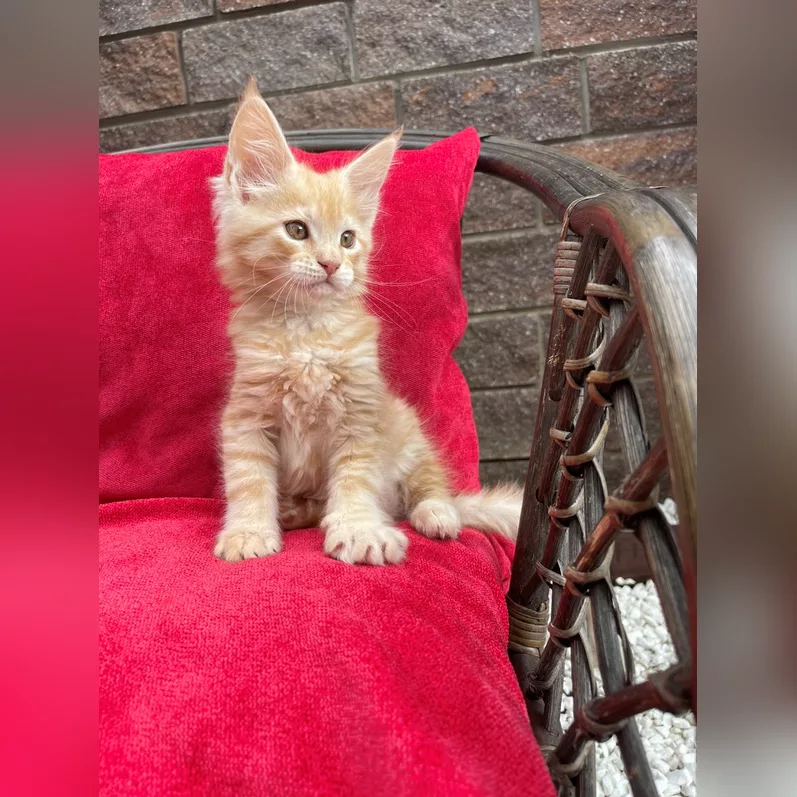
Create a Positive Environment
Maine Coons are known for their sweet and social personality. As is true with any cat, they’re prone to behavioral issues if their needs are not catered to. An inclusive, engaging, and supportive environment not only combats these challenges, but fosters a culture of well-being.
By being mindful of space, activities, and routine, we can better provide for Maine Coons so they thrive.
Provide Adequate Space
Maine Coons are one of the largest domestic cat breeds, so they require a lot of vertical space to roam, jump, and play. The larger your residence, the more freedom your cat has to explore. Providing access to vertical spaces, whether through cat trees or shelves, entices them to showcase their natural behaviors.
A big wooden cat tree by the window makes a fantastic climbing escape. It provides your feline friend the opportunity to watch the great outdoors. Don’t overwhelm their area with furniture or too many decorations, since open spaces create more room for movement and lower anxiety levels.
Offer Plenty of Toys
Interactive toys are a must for Maine Coons, as their smartness and curiosity need to be fed with mental challenges. Puzzle feeders, feather wands, and ball tracks are all great options to help meet their fun-loving spirit.
Rotating toys each week helps keep kids’ interest fresh and avoids letting toys languish in boredom. Take, for instance, a basic laser pointer, which can offer hours of entertainment while stimulating physical activity.
Challenging their minds with diverse experiences lessens damaging behaviors such as chewing or knocking over home furnishings.
Ensure Scratching Posts Available
To let your cat indulge in this instinctive behavior, getting more than one scratching post or scratching pad is key. Opt for solid posts wrapped in sisal rope or heavy-duty carpet.
Put them around spots where your Maine Coon spends a lot of time, such as near their beds and doorways/exits. This arrangement channels their need to claw on your couch or doors.
To add some additional interest, rub some catnip on the posts or build scratching components into their trees and towers.
Maintain Clean Litter Boxes
A clean and accessible litter box goes a long way in preventing an accident. As the largest domestic cat breed, Maine Coons need extra large boxes (about 2 feet long) to turn around and walk around.
Store the litter box in a private spot that’s clear of distractions, and scoop daily to encourage cleanliness. Using the same location consistently and keeping the area clean promotes the message to use it correctly.
Schedule Regular Playtime
Quality playtime develops quality bonds, which lead to increased trust and reduced behavioral issues. Set aside 15 – 30 minutes a day to play with your Maine Coon to help satisfy their hunting instincts with interactive toys like feather teasers.
Consistent play burns excess energy, leading to less hyperactivity and/or aggressive behavior. Feeding times and playtime that are consistent with other activities develop an orderly affair that your cat learns to depend on.
Socialization and Training Tips
Maine Coon cats are widely known for their friendly, gentle and sociable nature. In favor of developing these characteristics and preventing the development of any behavioral issues, you need to make socialization and training a priority. Meeting their special needs from the start sets them on the path to becoming happy, resilient, and confident adult companions.
Below, we chart research-based, commonsense ways to reinforce their growth.
Early Socialization Importance
Early human socialization during a Maine Coon’s first few weeks and months is essential to developing a calm, well-mannered personality. Cats that have many different experiences, environments, and people during the critical early period are more adaptable. Consequently, they are less likely to experience stress.
For example, introducing new family members or other visitors early on makes it less scary when someone unfamiliar comes in. Maine Coons are naturally curious, and they respond well to positive reinforcement, like treats or praise, so make sure to include these during these interactions. This method rewards desirable behavior and helps create trust with them, so they relate social interactions to positive experiences.
Introduce New Experiences Gradually
Maine Coons do best in encouraging environments where transitions are made slowly. Sudden changes, such as rearranging furniture or introducing new pets may throw them into a panic. Shed a single room if that’s a better approach – don’t go home and put them in a whole house first!
When you add a new scratching post or toy, set it down in an area they frequent. Allow them to make the first move and approach it at their own pace. The gradual exposure is the most effective way to reduce territorial behavior, which is important if you have several cats living in one area.
Supervise Interactions with Other Pets
Maine Coons are usually very tolerant of other animals, but close supervision is required during initial introductions. Start by letting them watch other animals from afar. To create a safety boundary, use barriers like baby gates to keep the dog contained.
Monitor their body language to look for indications of stress, like flattened ears or hissing, and intervene in a relaxed manner if necessary. Use treats or calm verbal praise with positive reinforcement to make handling and examination a positive experience.
Teach Basic Commands
Obedience training Basic commands such as “sit” or “stay” aren’t just for dogs – Maine Coons can pick them up as well. Use frequent, 2-5 minute training sessions paired with enticing rewards to maintain focus and engagement.
For instance, introducing “come” can be useful for summoning them through playtime or mealtime. This deepens your relationship and makes them think, helping to keep them stimulated and satisfied.
When to Seek Professional Help
Understanding when to seek professional help for your Maine Coon’s behavior issues is essential for their well-being and your peace of mind. You can address most issues you may face in your home with perseverance and the proper methods. Sometimes, taking advantage of professional advice is essential to ensure your cat’s wellbeing and prosperity.
Below, we describe particularly important situations in which expert help is needed.
Recognize Signs of Severe Anxiety
Severe anxiety in Maine Coons is apparent in excessive meowing, destroying furniture with scratching, or hiding in places for long periods of time. If your Maine Coon seems lethargic, pay attention. Actions such as strenuous pacing, excessive over-grooming, or litter box avoidance are signs that a cat is likely dealing with more advanced emotional distresses.
Cats are attuned to changes in their surroundings. They can respond poorly to relocations, new animals, or even minor changes in your day-to-day routine. Although mild anxiety can usually be handled with ongoing treatment, ongoing warning signs show it’s time to seek professional help.
Only a veterinarian or certified animal behaviorist can pinpoint your cat’s anxiety triggers. They’ll be able to recommend tailored solutions, whether that means environmental changes or calming products, to set your pet up for success.
Identify Persistent Aggression
Inappropriate aggressive behavior like biting, hissing, or swatting Maine Coons are, by nature, gentle giants. When these behaviors are repeated or become more serious, it’s time to intervene. Persistent aggression may be caused by fear, territorial disputes, or even undiagnosed illness.
For instance, severe pain from such conditions as arthritis or dental pain can lead to painful flare-ups of aggressive behavior. An animal behaviorist can help determine whether your cat’s aggression is due to pain or behavioral causes. They can then recommend proven methods like desensitization or positive reinforcement training to make your cat feel safe, lowering aggression.
Consult Veterinarian or Behaviorist
If your Maine Coon is showing extreme or escalating behaviors that you can’t modify even after taking steps, it’s time to reach out to a veterinarian or animal behaviorist. Any unusual signs, including extreme lethargy, sudden change in vocalization, or loss of appetite, could be a sign of something more serious.
Only with the help of professionals can families rule out medical concerns and have someone create a comprehensive plan to address behavioral issues. By taking action early, you can improve the overall outcome, making things easier for both you and your cat if challenges arise.
Discuss Medication Options
In extreme situations, medication could be prescribed to help with extreme anxiety or aggression. Behavioral training may be necessary alongside medication. Anti-anxiety medications (e.g., Selective Serotonin Reuptake Inhibitors) or natural supplements can be considered.
Veterinary prescription ensures appropriate dosage and product support behavioral training. Medication isn’t exactly Plan A, but it’s the next best thing. It can help your Maine Coon through stressful events, such as moving to a new house or healing after an injury.
Your veterinarian can help you decide among the options, with the goal of tailoring your treatment to the individual needs of your cat.
Preventative Measures for Future Issues
Knowing what makes Maine Coons special is the key to doing right by them. It’s more than an investment in their future success; it protects against coming behavioral or health issues. Through preventative measures and more informed caretaking, we have the opportunity to provide these remodeled gems with the sustainable, joyful surroundings they deserve.
Maintain Consistent Routine
Maine Coons are very habitual, and keeping a solid routine makes them feel safe. Set feeding schedules, productive playtime, and specific resting areas build a routine that diminishes stress and avoids behavior caused by boredom or frustration.
For instance, by feeding your cat at the exact same time each day, you can reduce food-based aggression or begging. In homes with multiple cats, socializing your Maine Coon from kittenhood is essential to prevent territorial conflicts.
Let the cats get to know each other slowly. In the beginning, feed and play with them in different rooms to help with the adjustment and create peace.
Provide Mental Stimulation
A bored Maine Coon may resort to destructive behavior like compulsive meowing or scratching. Giving environmental enrichment through toys, puzzles, and interactive play is very important to their wellbeing.
Rotating toys on a weekly basis, or providing treat-dispensing puzzles, helps to engage their minds and encourages creative boredom-busting fun. Using wand toys that simulate the stalking and catching of prey helps fulfill their predatory instincts.
Before you go, provide stimulating things for your cat to explore. Cat trees and window perches will provide stimulation and entertainment that can help alleviate separation anxiety. An extending separation, over the course of several months, prepares them to adapt to your absence without anxiety.
Monitor for Early Warning Signs
Behavioral changes are usually a sign of something deeper. Keeping an eye out for behavioral changes, such as increased avoidance, aggression, or abnormal vocalization can indicate anxiety, sickness, or discomfort.
Provide effective solutions to curtail overeating and reverse weight gain. Carrying excess weight increases the risk of developing arthritis and can reduce your life expectancy by as much as two years.
Frequent check-ups allow us to intervene at an early stage and help ensure that our Maine Coon can remain as healthy as possible.
Regular Veterinary Check-ups
Regular health care through veterinary visits is key to preventing and catching life-threatening issues early. Maine Coons are predisposed to conditions like hip dysplasia and dental issues, so scheduling regular X-rays and cleanings is important.
Another important factor to consider is that spaying or neutering reduces the risk of many diseases, such as uterine infections or testicular cancer. Blood type identification is another vital step for emergencies, ensuring every second counts when a transfusion is needed.
Diet, Exercise, and Enrichment
Knowing how diet, exercise, and mental stimulation are related is key to stopping Maine Coons from developing behavioral problems before they start. These large, intelligent cats require a holistic approach to their care, combining proper nutrition, physical activity, and mental stimulation to thrive.
The Role of Diet in Behavior
A healthy diet plays a major role in your Maine Coon’s health which in turn affects their behavior. A diet rich in high-quality proteins, healthy fats, and essential nutrients ensures they have the energy to stay active while maintaining a calm demeanor.
We know that lack of nutrition and/or inconsistent feeding terms can contribute to increased irritability or lethargy. Treats are a useful addition to reward desirable behaviors but should make up no more than 10% of their daily calories.
They can even become overweight and suffer related health problems, which may present as increased irritation or a lack of movement. Adding in interactive feeding devices, like puzzle feeders, is one way to up the ante and make mealtime more enriching.
These distance and distractions not only make meals feel less rushed but reduce food guarding aggression by helping promote focus and engagement. Providing a regular feeding schedule makes your Maine Coon more relaxed and less likely to develop anxiety.
Setting regular meal times and providing a clean, well-maintained feeding area helps establish an environment that feels more stable and makes an impact on behavior.
Exercise Needs for Maine Coons
Maine Coons are energetic, intelligent cats by nature that you need to keep physically and mentally stimulated in order for them to be properly adult Maine Coons. Without proper enrichment, they can become bored and develop negative behaviors, like scratching and excessive vocalization.
Climbing and exploring are second nature for Maine Coons, so cat trees, shelves, or even wall-mounted perches are a must. These vertical spaces satisfy their passion for altitude and encourage them to work out in the process.
Play sessions using toys that mimic prey, such as feather wands or laser pointers, are excellent for burning energy and reducing stress. Aim for 15 – 20 minutes of interactive play to start with and build to as much as possible.
Enrichment Activities to Prevent Boredom
Mental stimulation is equally essential as exercise for Maine Coons. An under-stimulated cat will often develop frustrating habits such as overgrooming or constant vocalization for attention.
Experiment – rotate a range of toys – balls, tunnels, electronic gizmos – to make their surroundings thrilling. Interactive, movable puzzles help stimulate their minds and problem-solving abilities, while window perches provide all-day fascination with the flying feathered friends outside – or the cars going by!
Scheduling time each day to play with them enhances your relationship and avoids frustration and anxiety.
